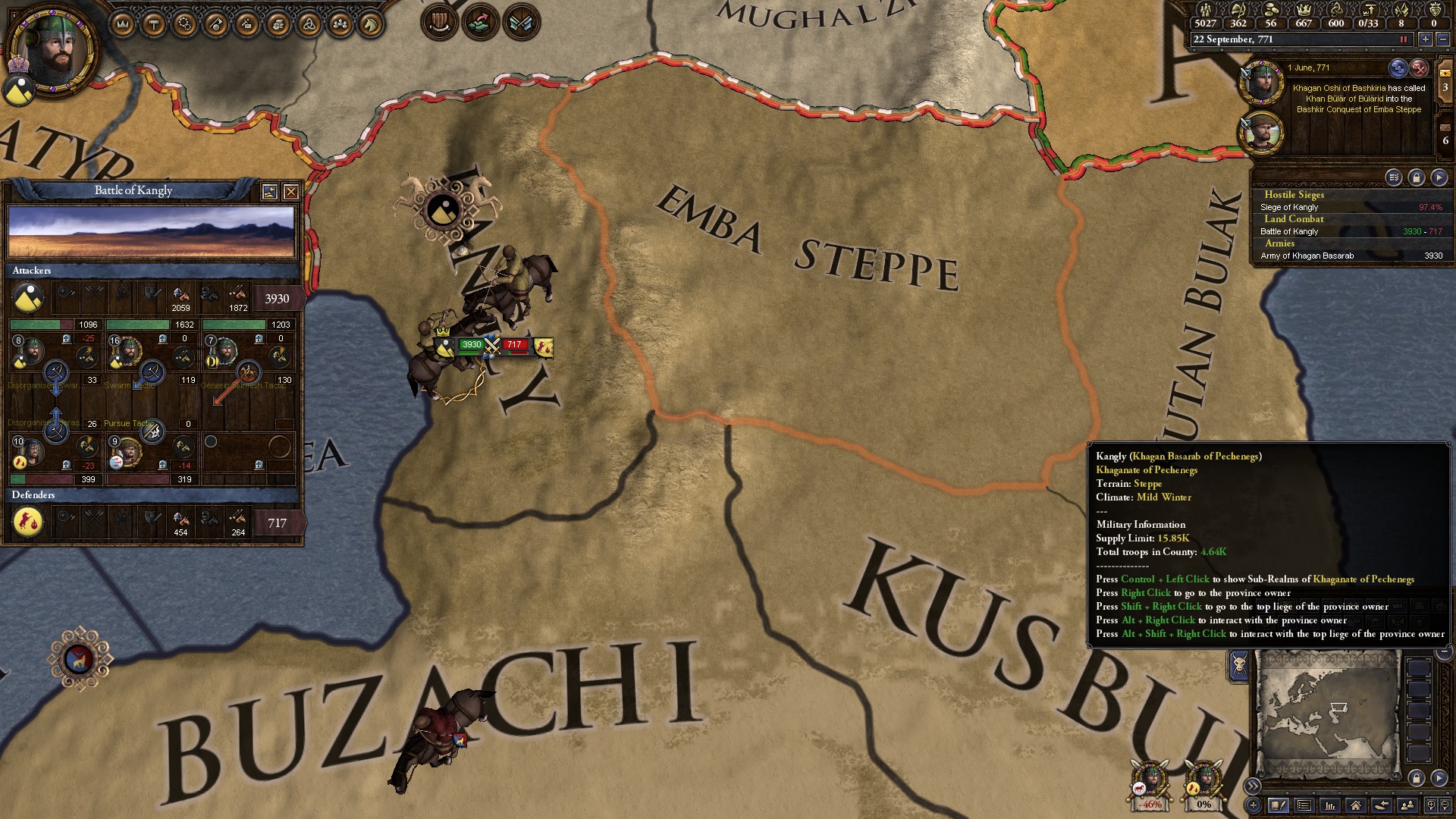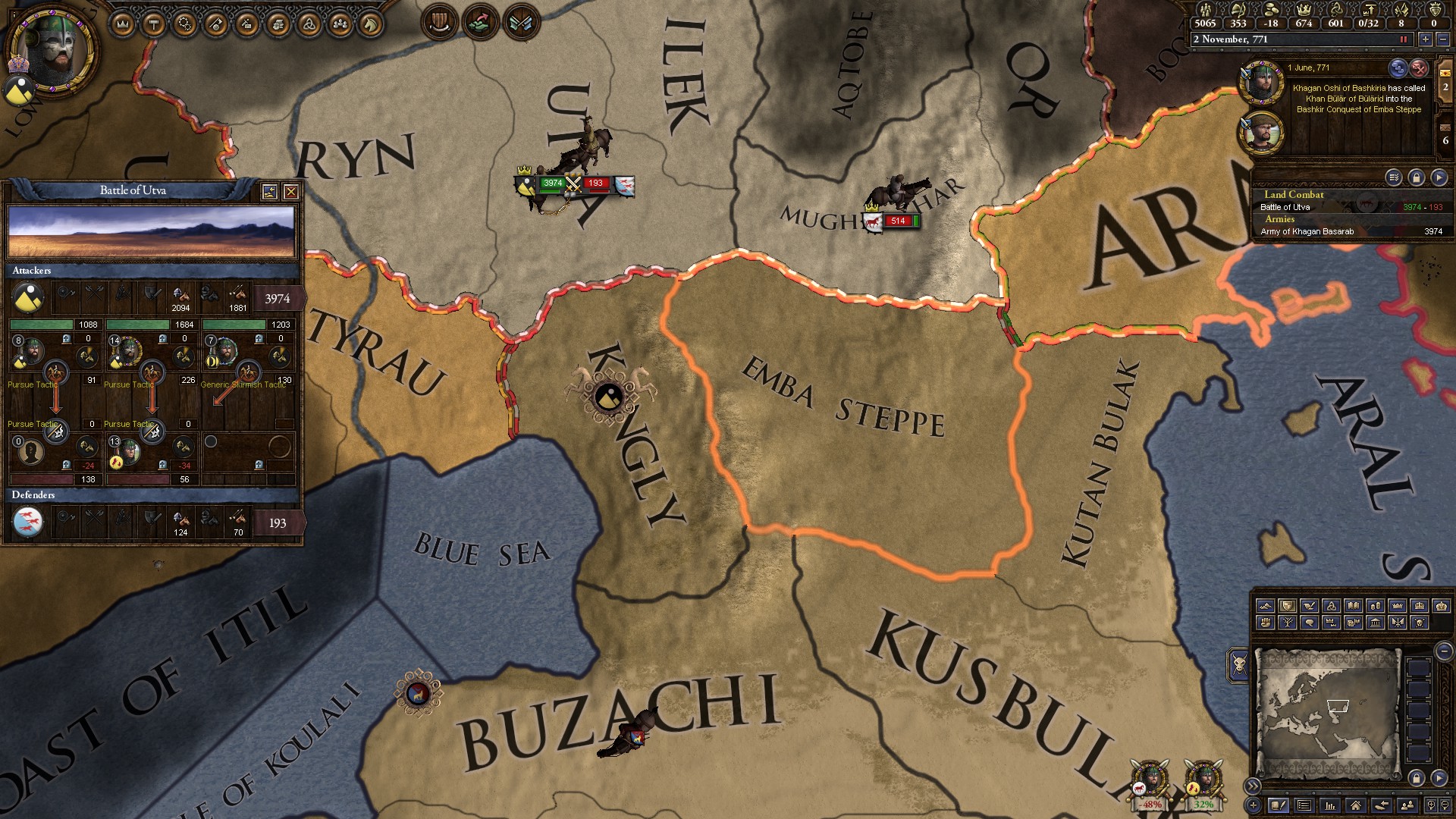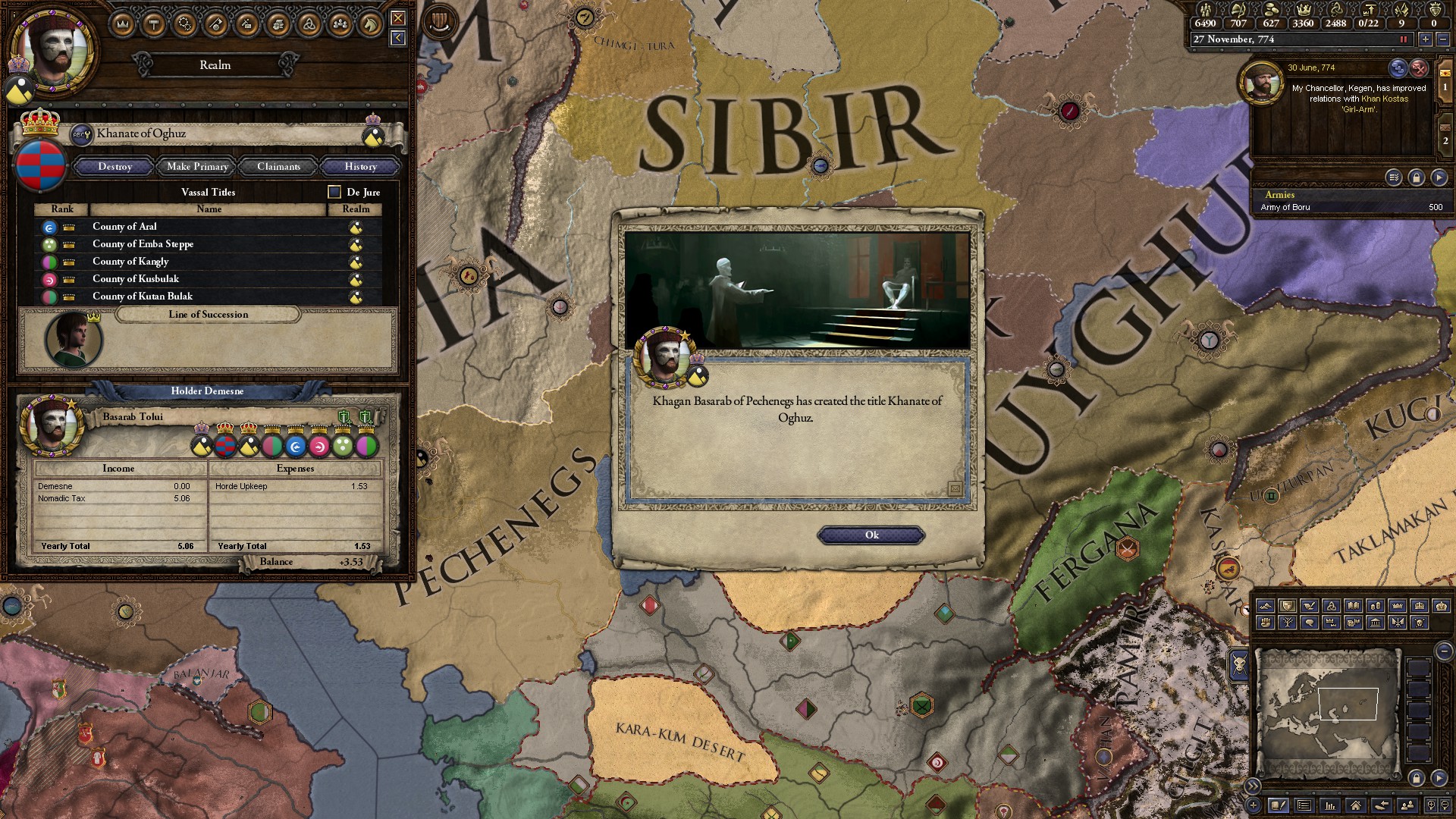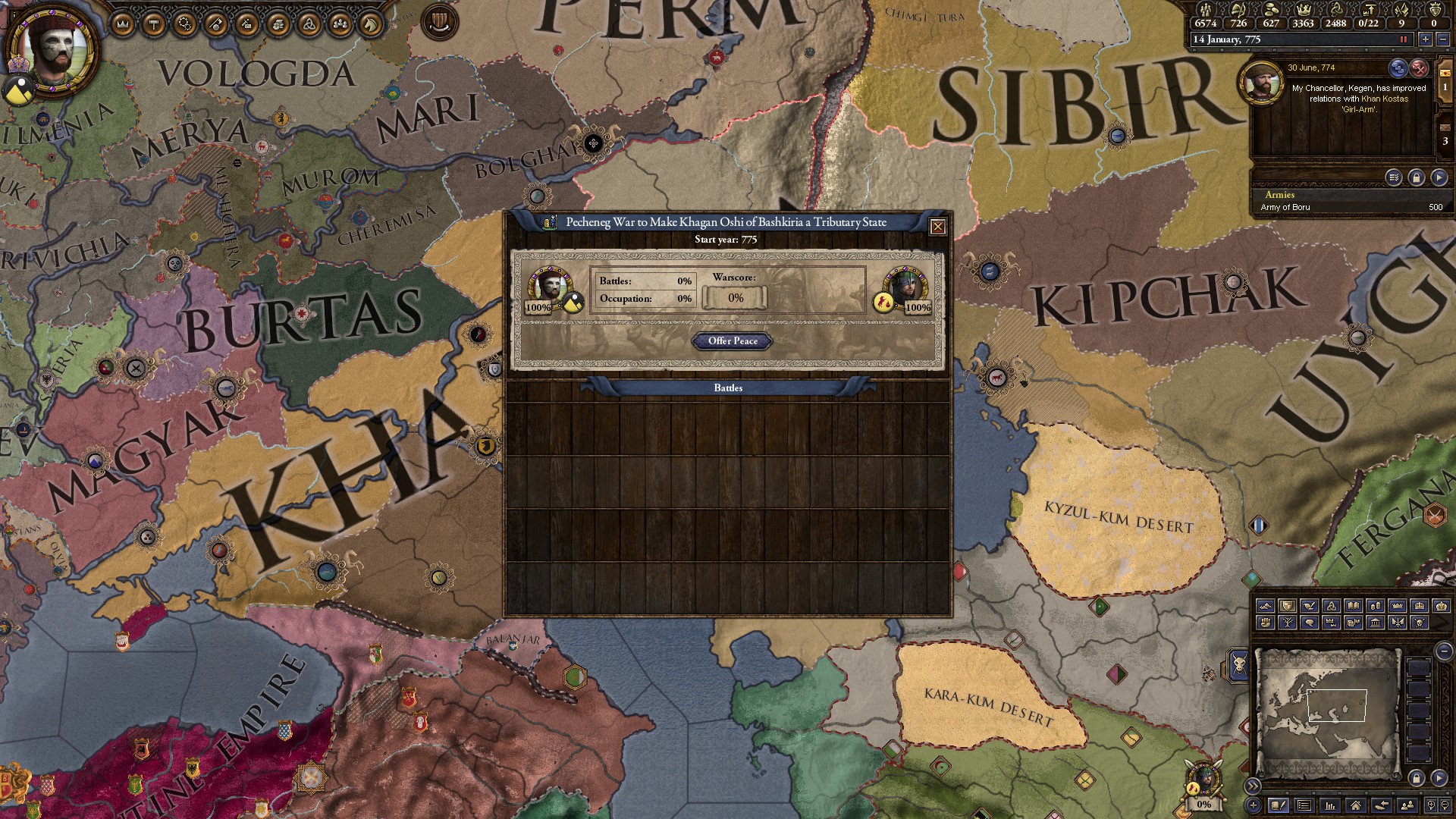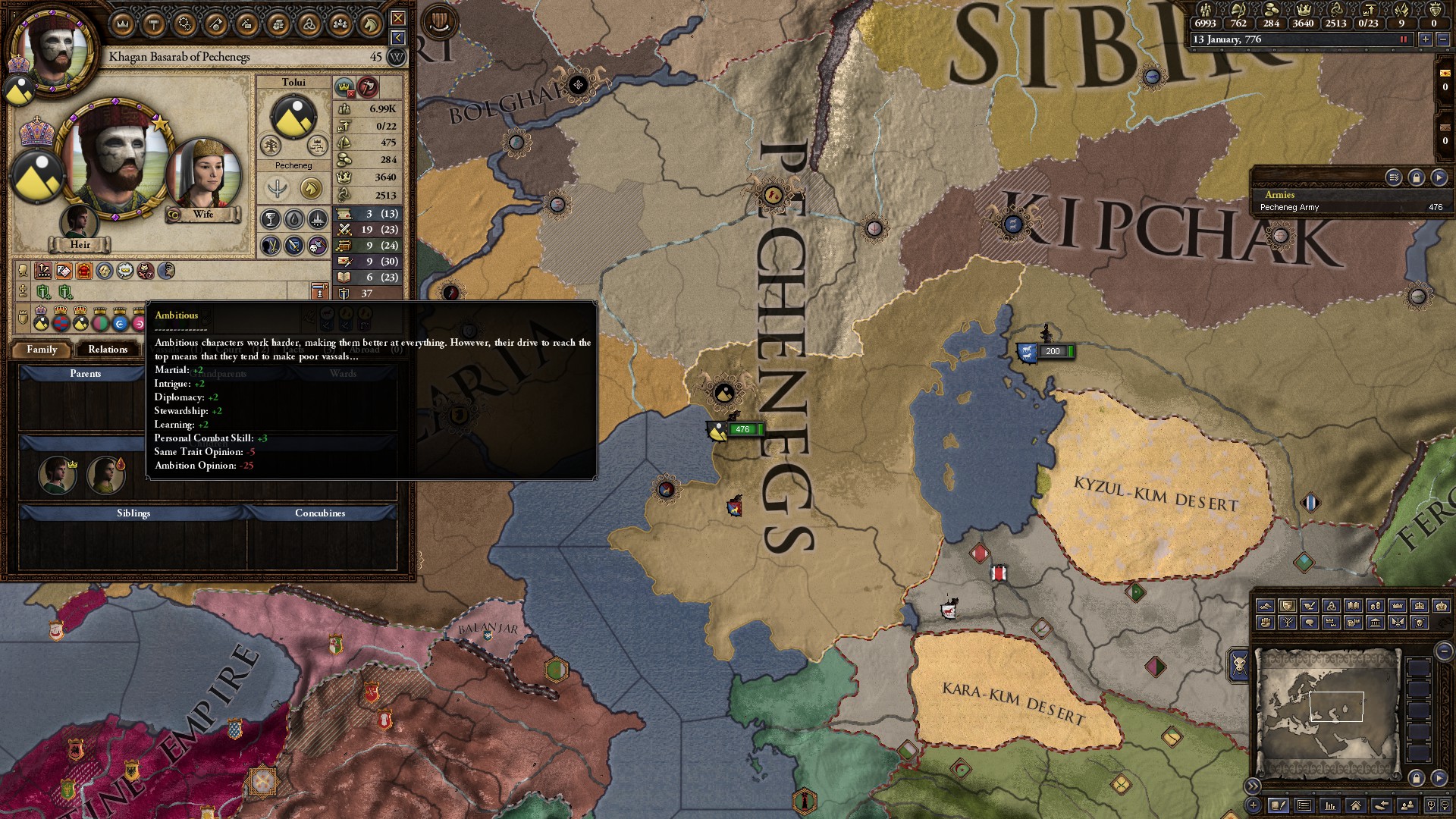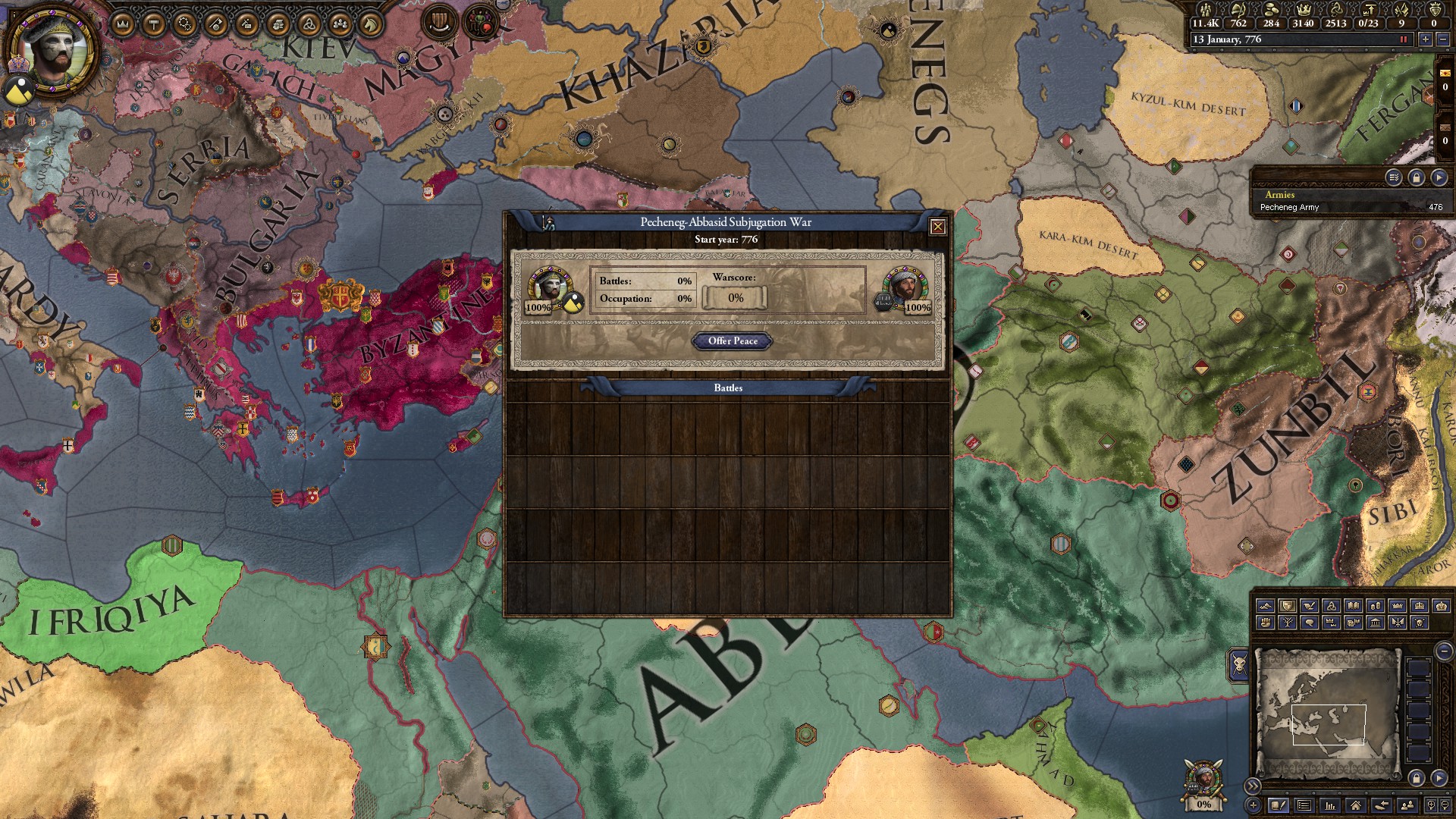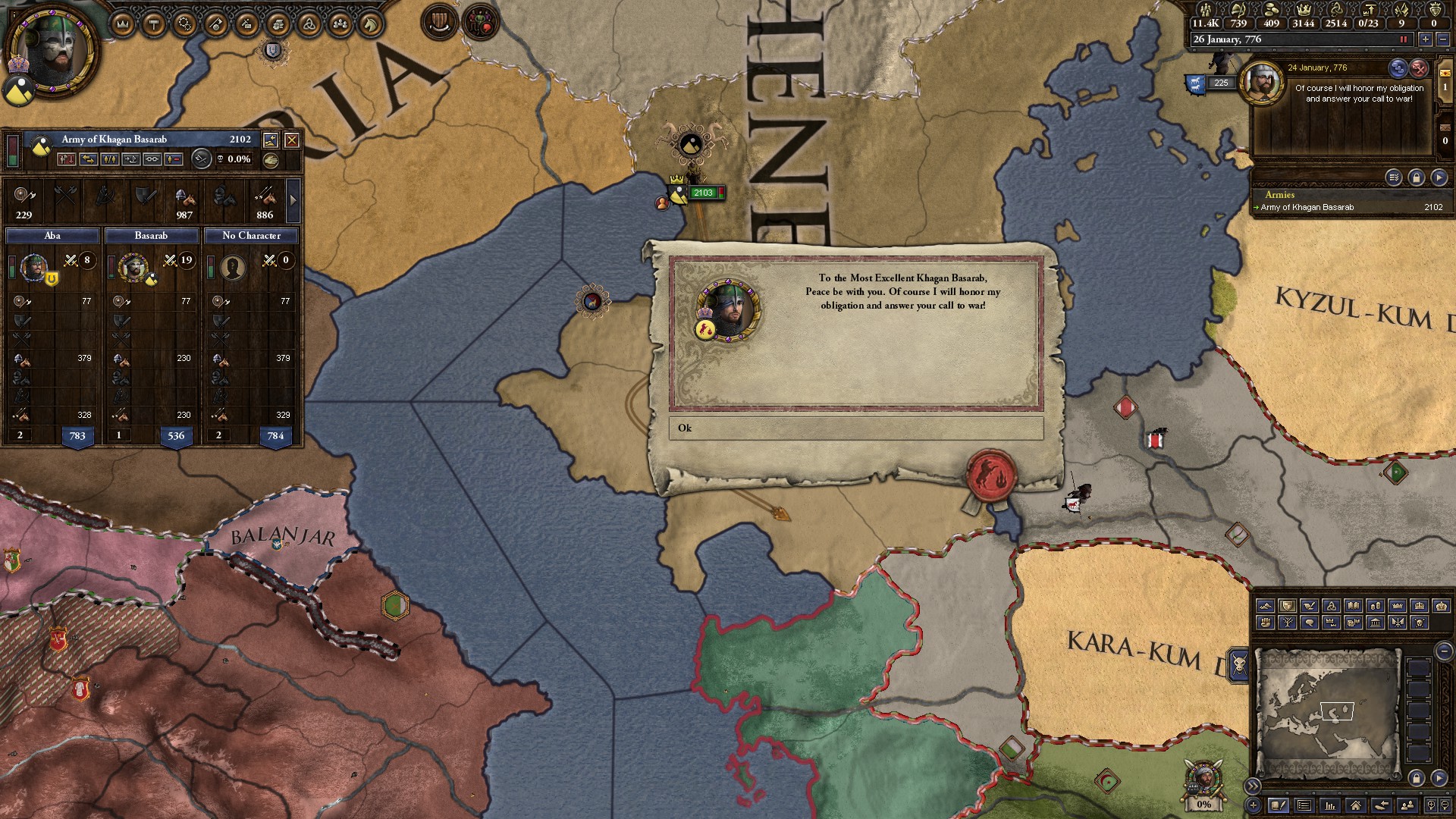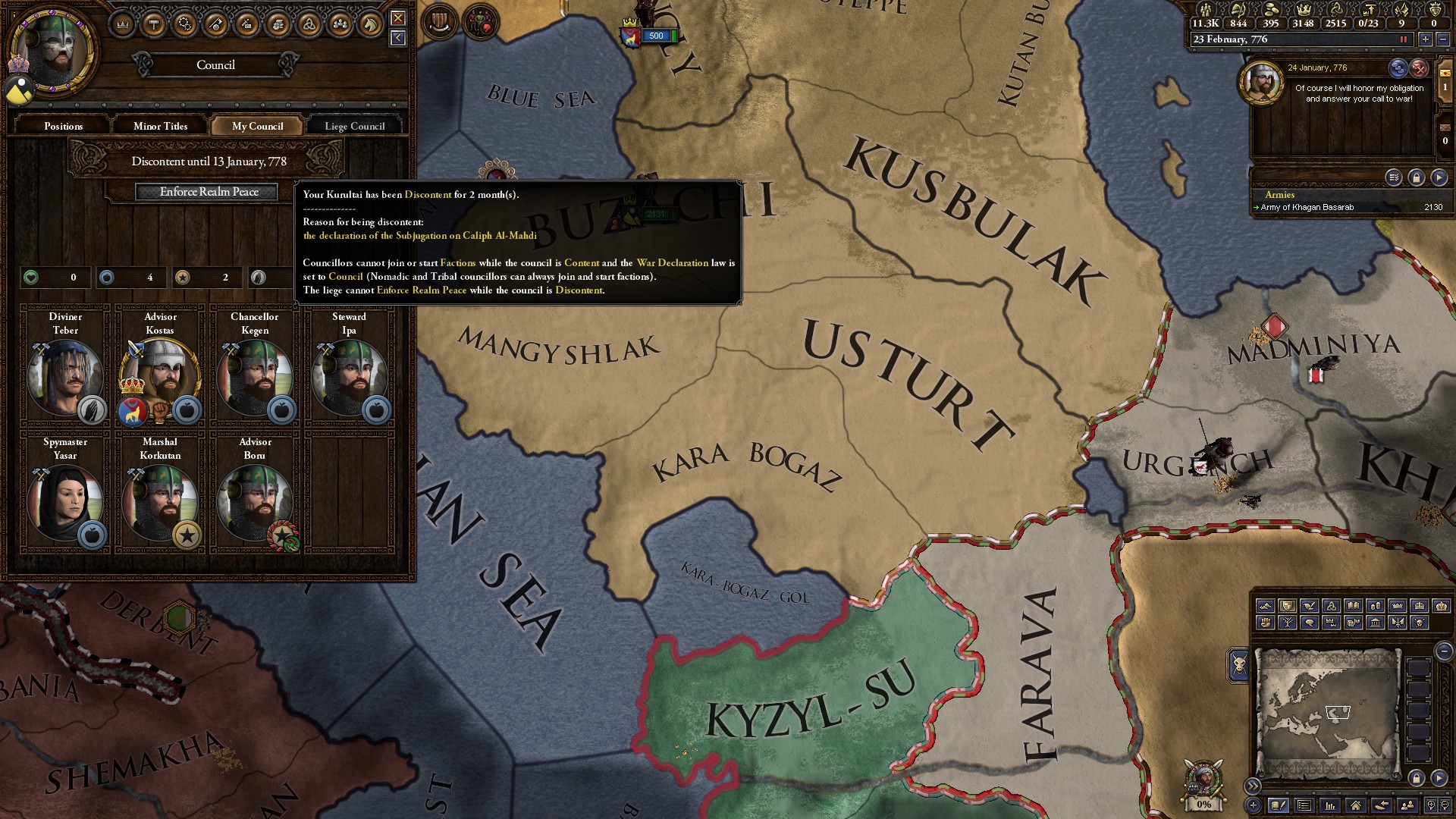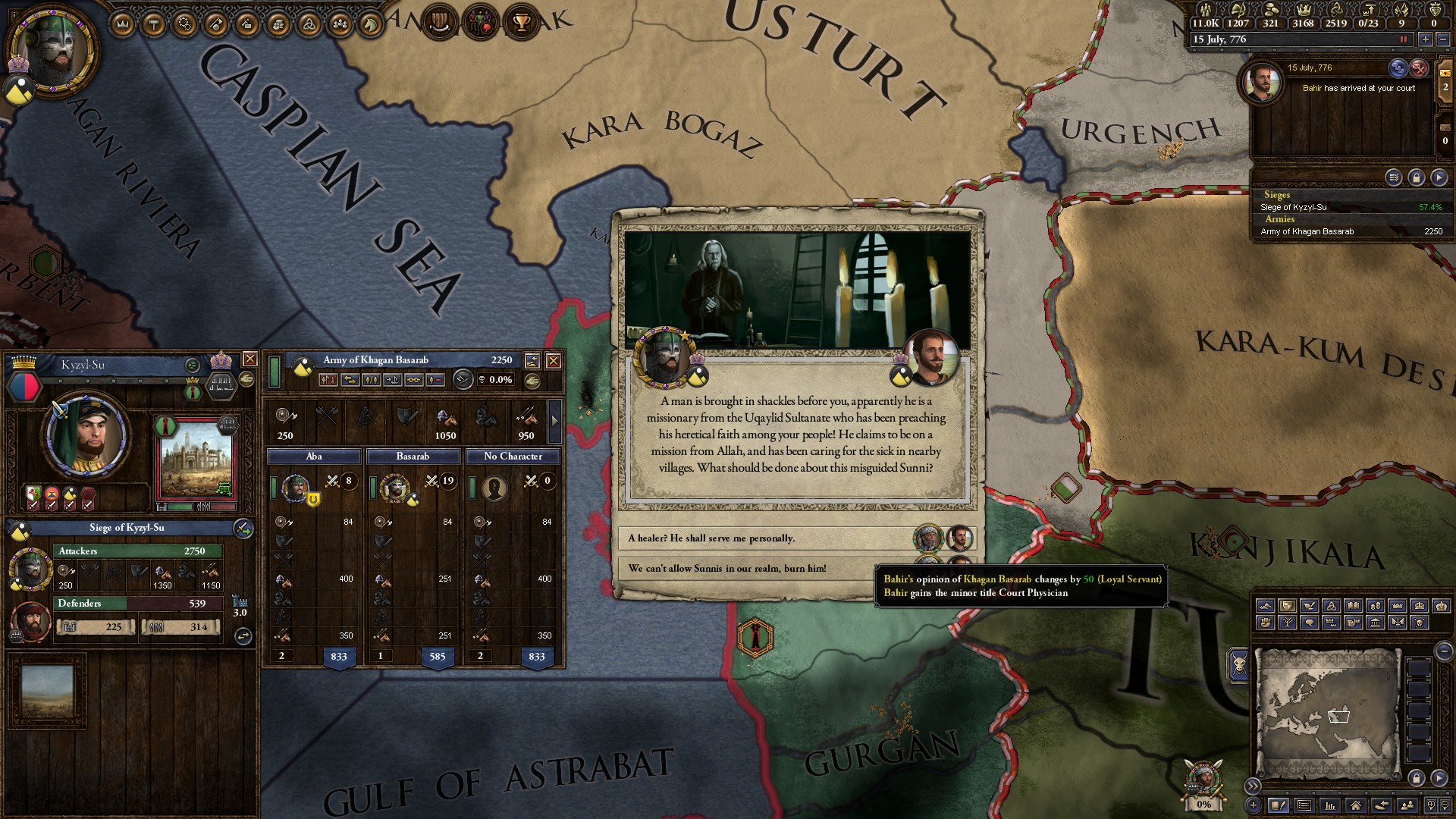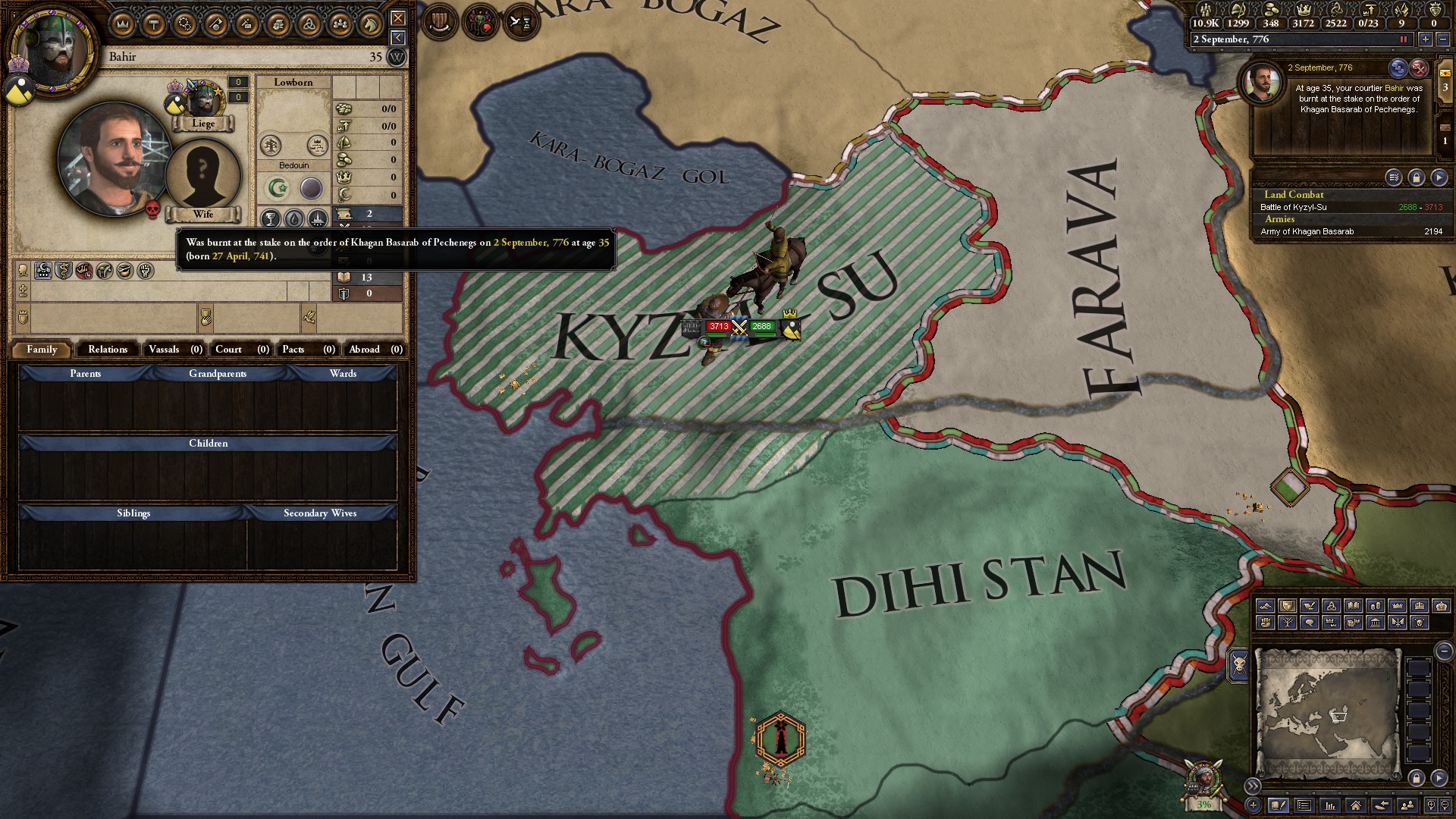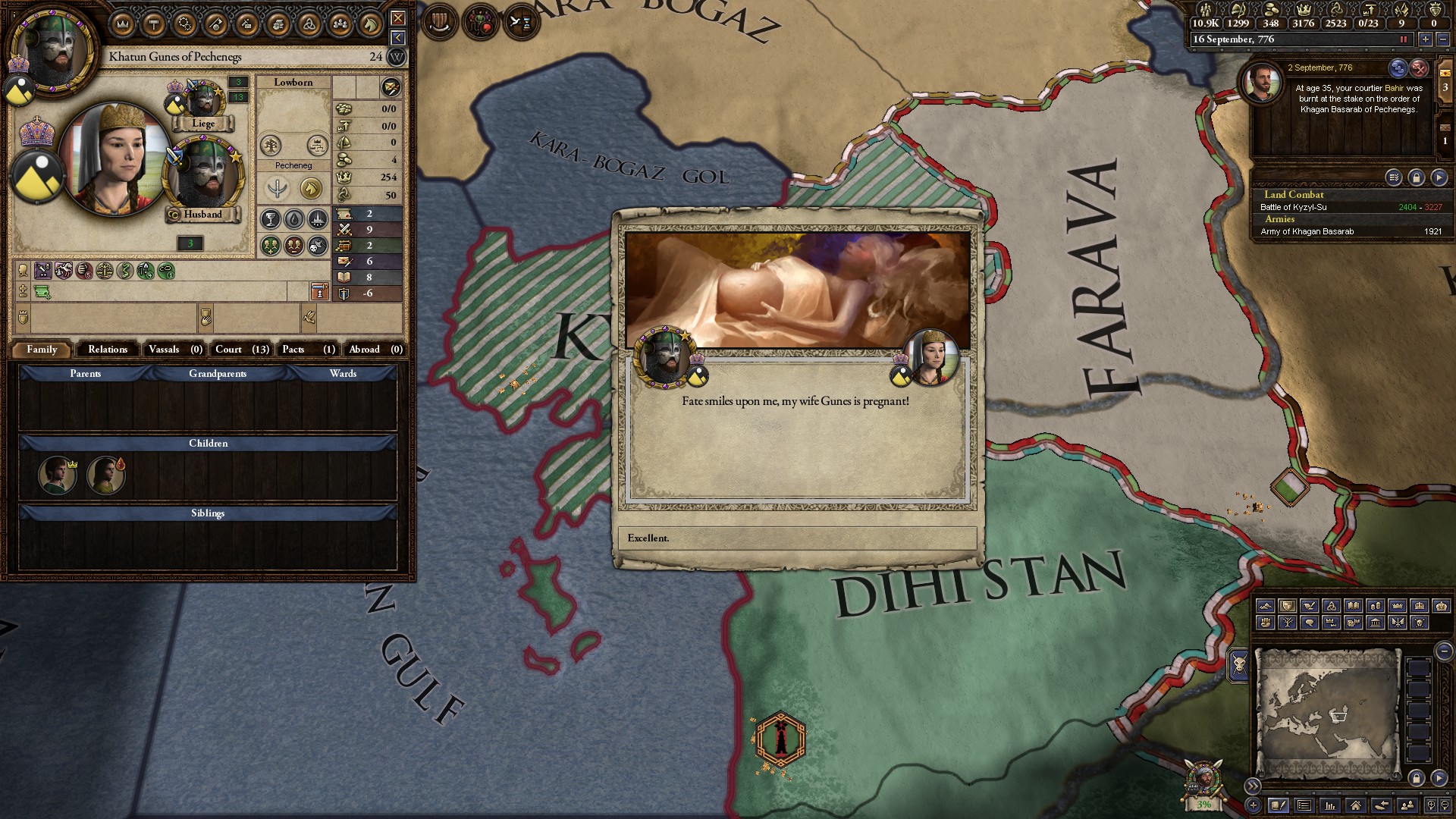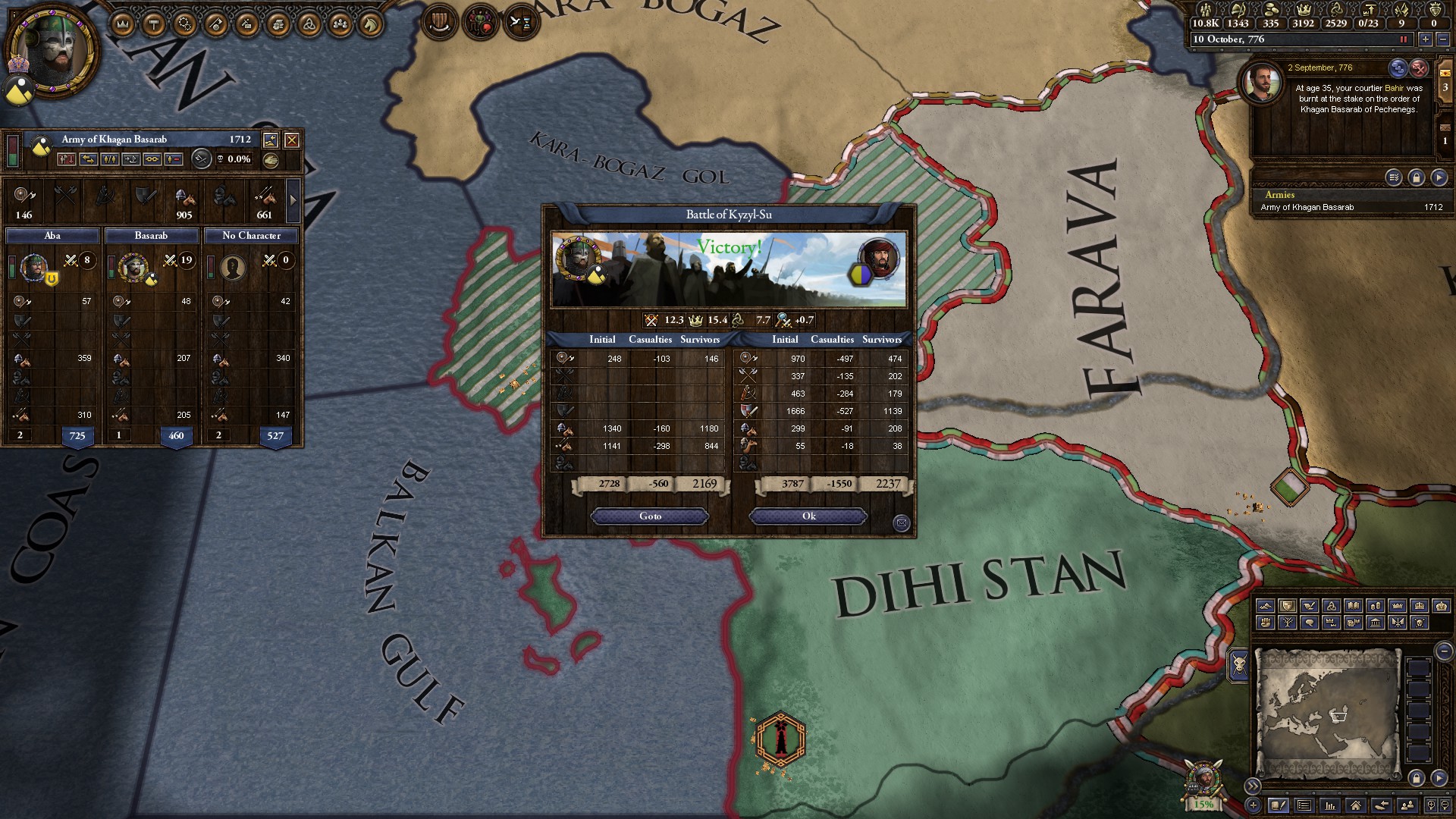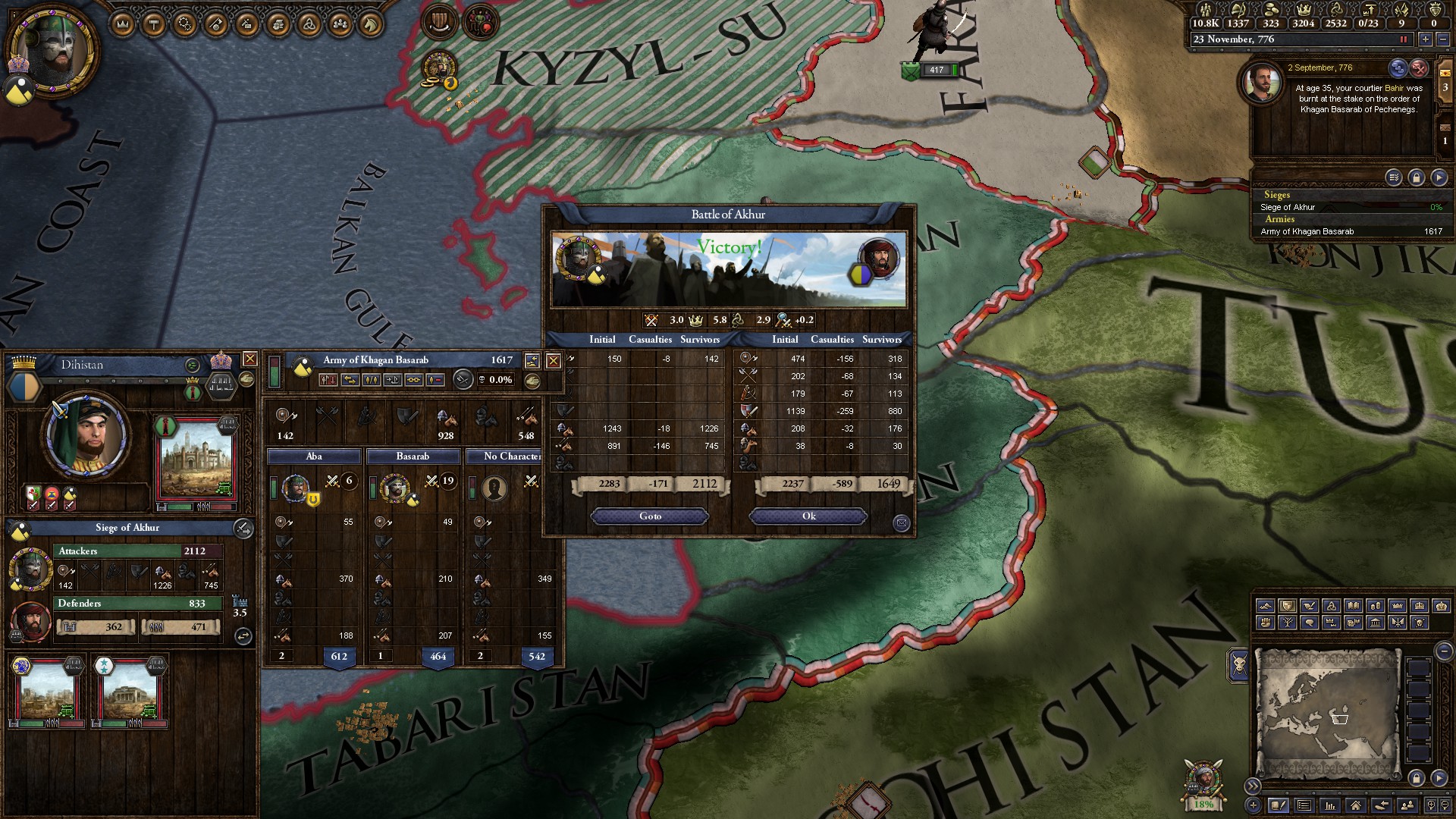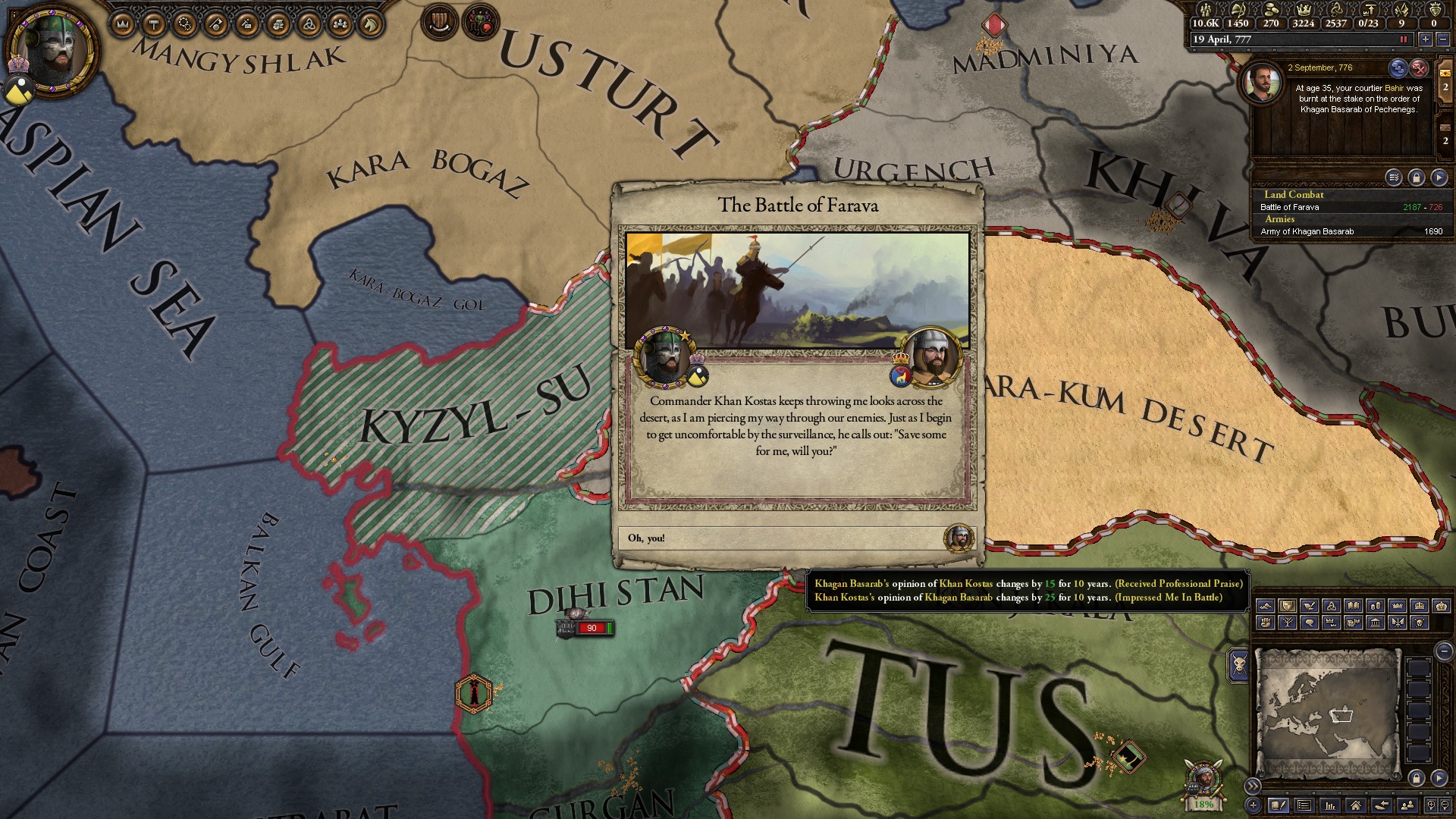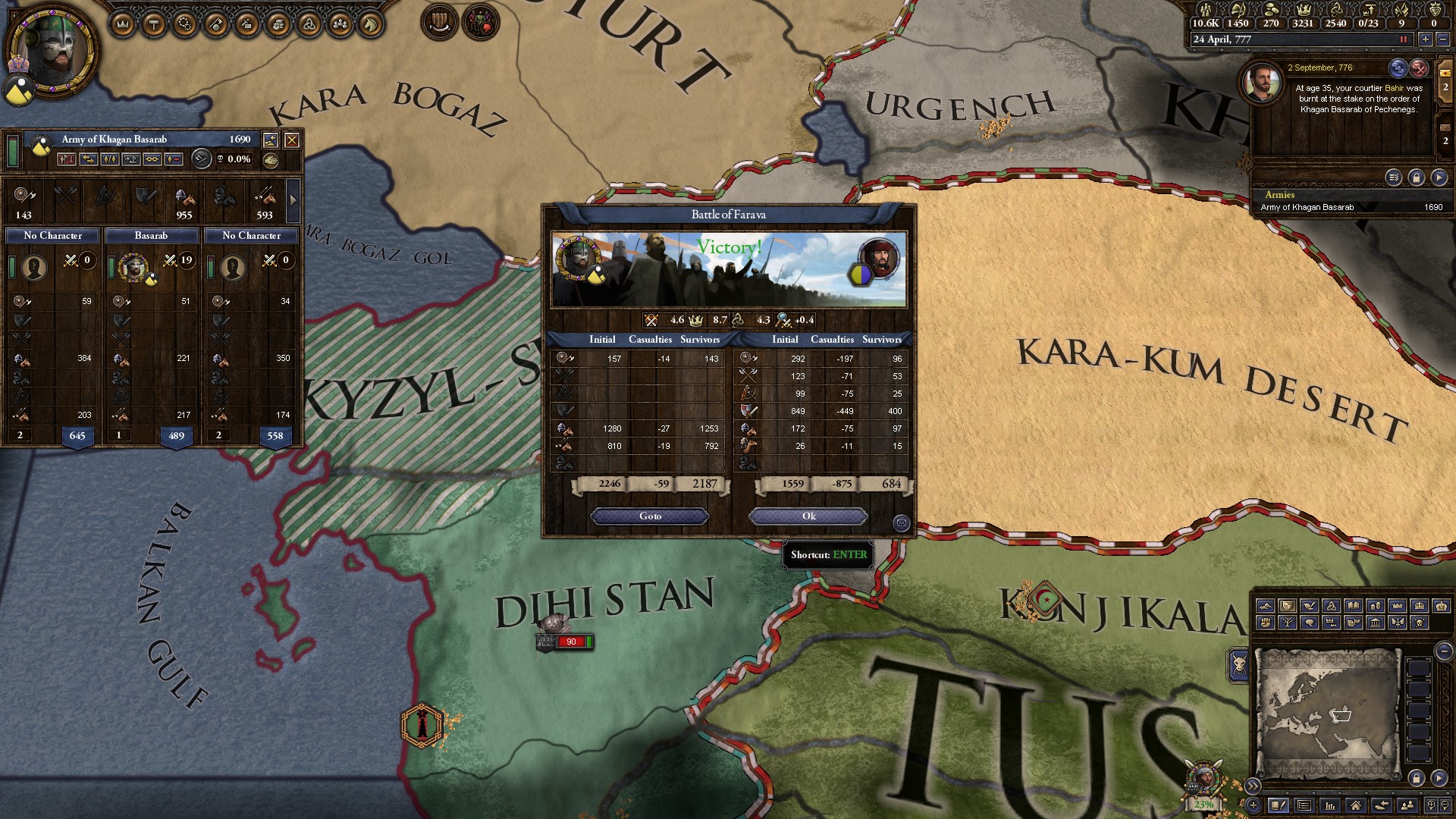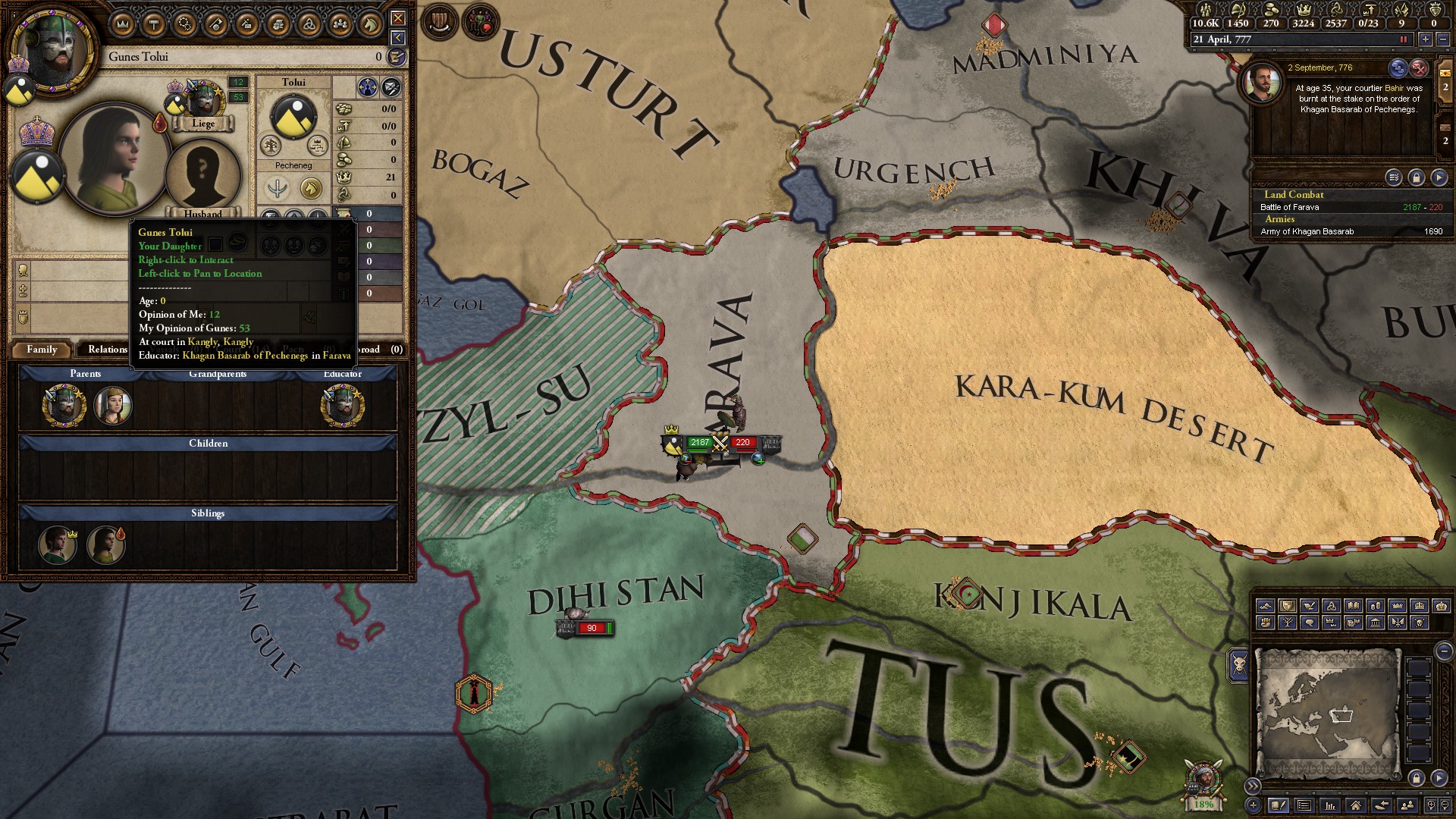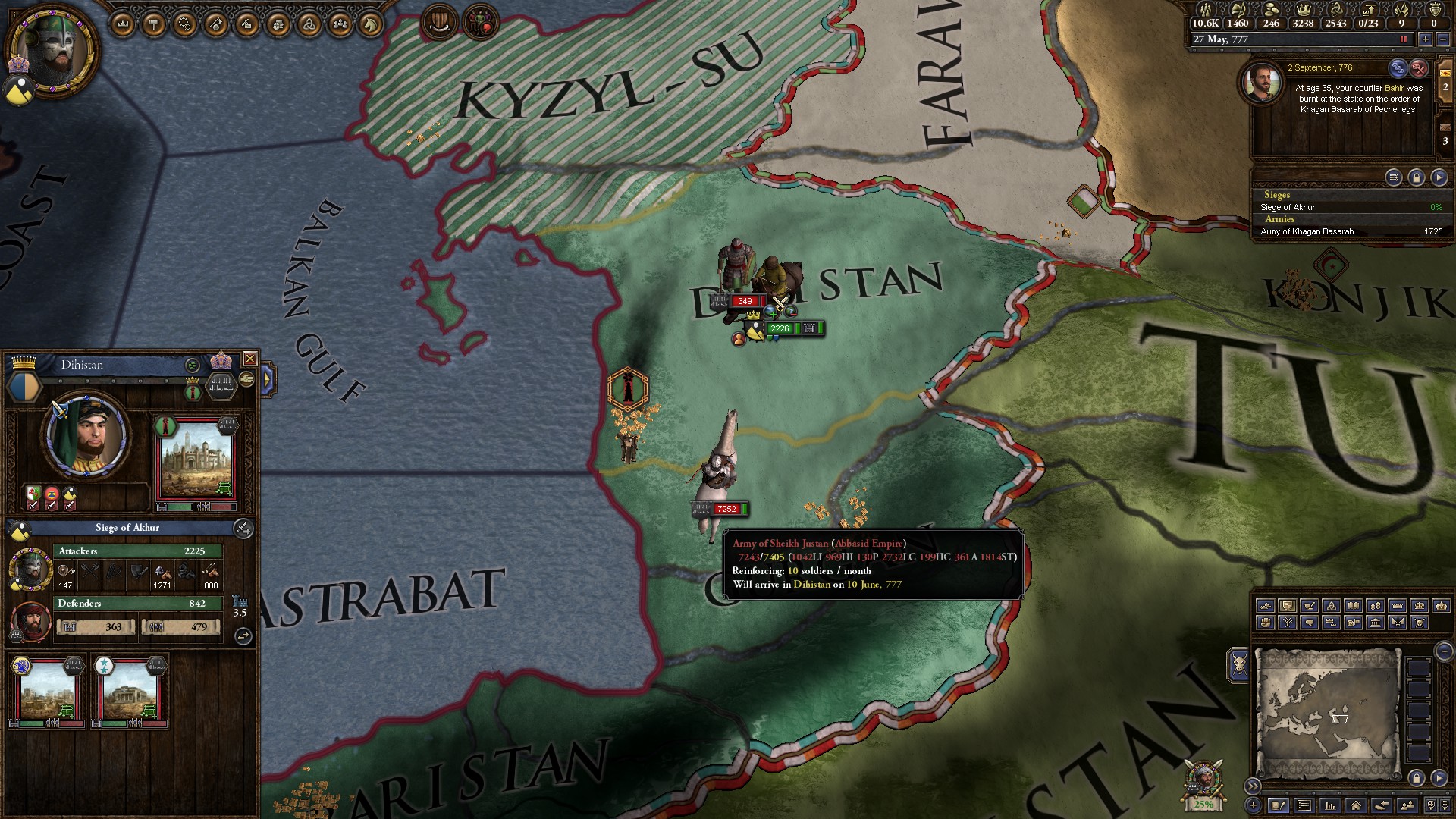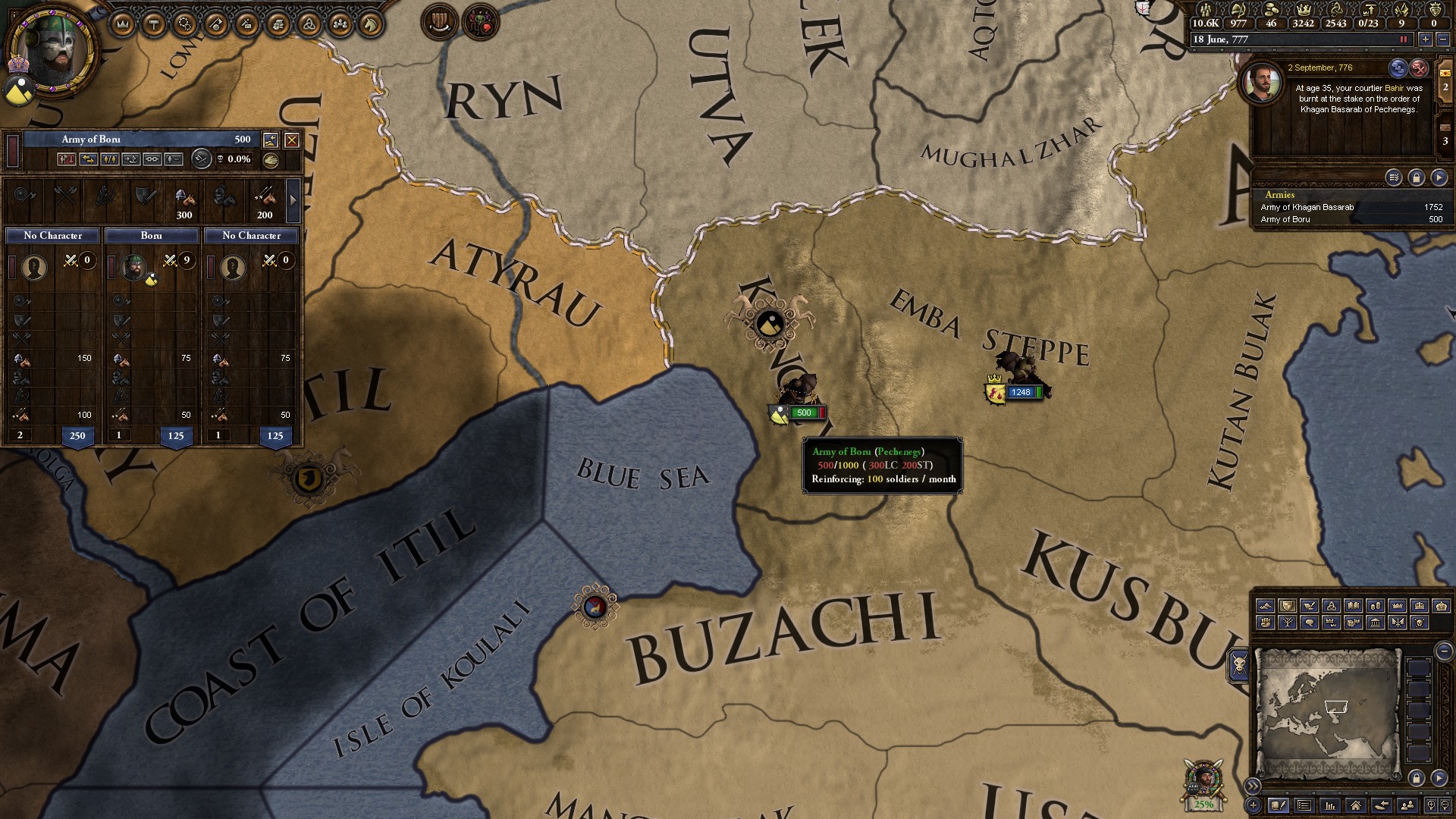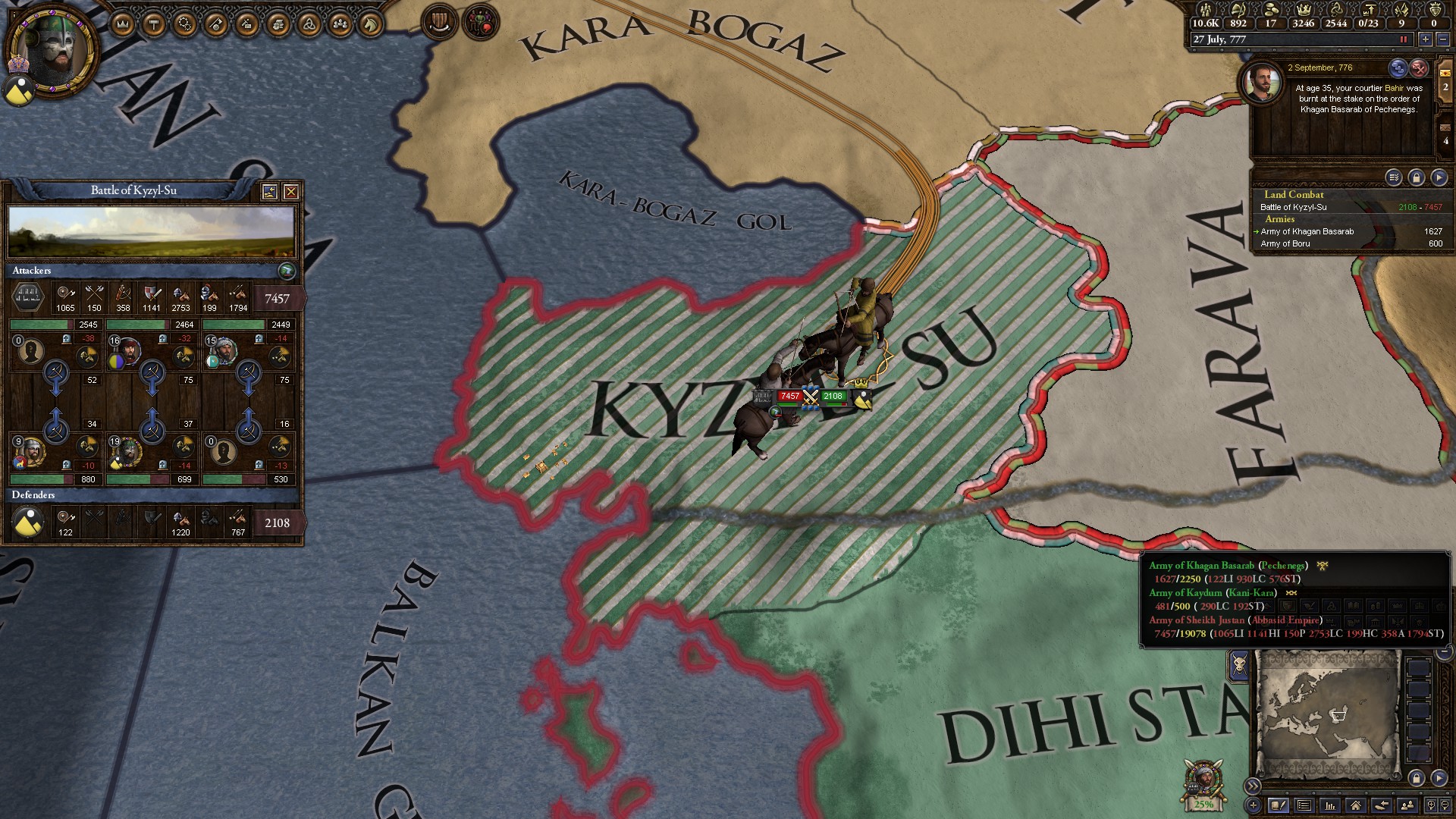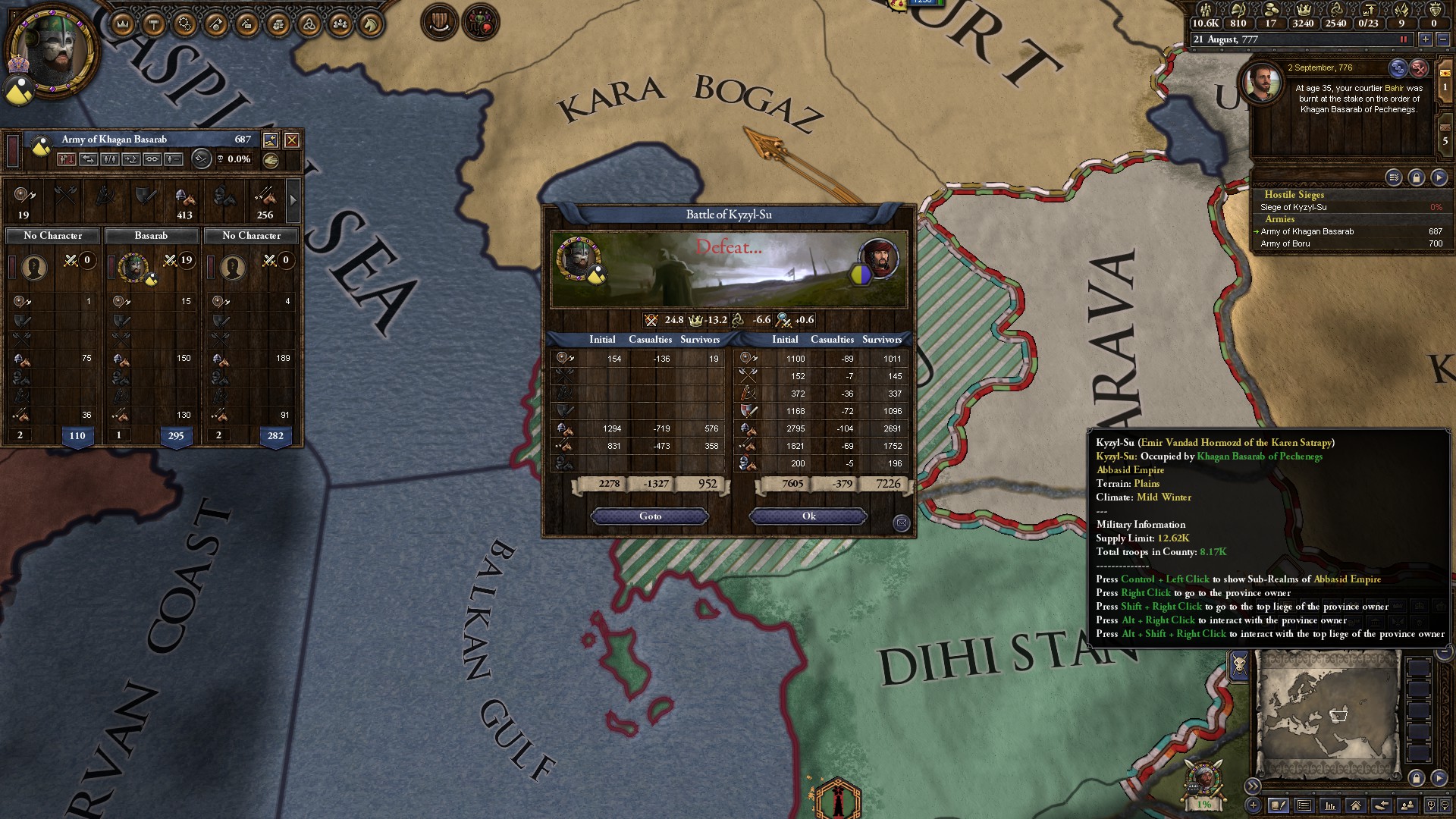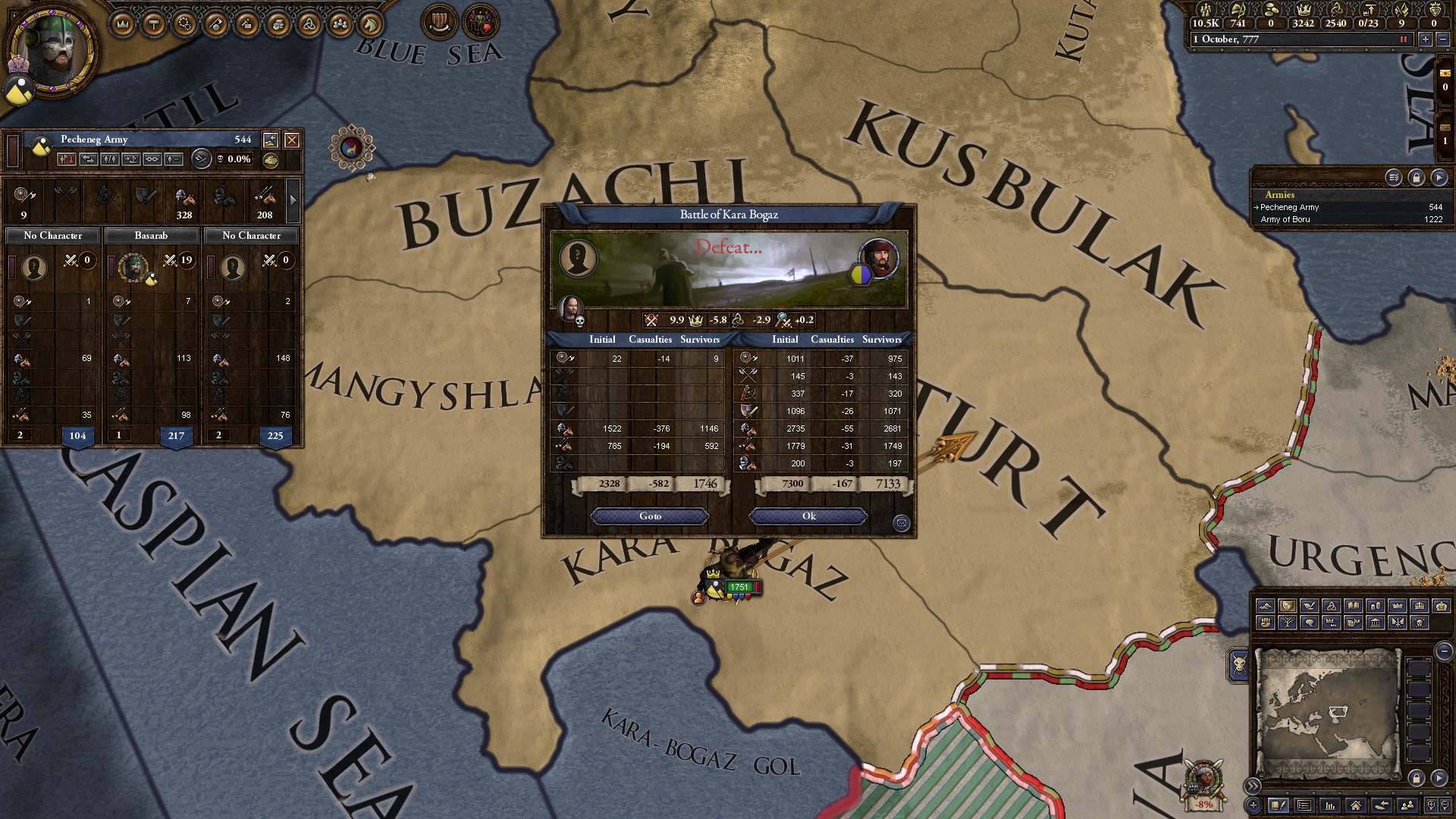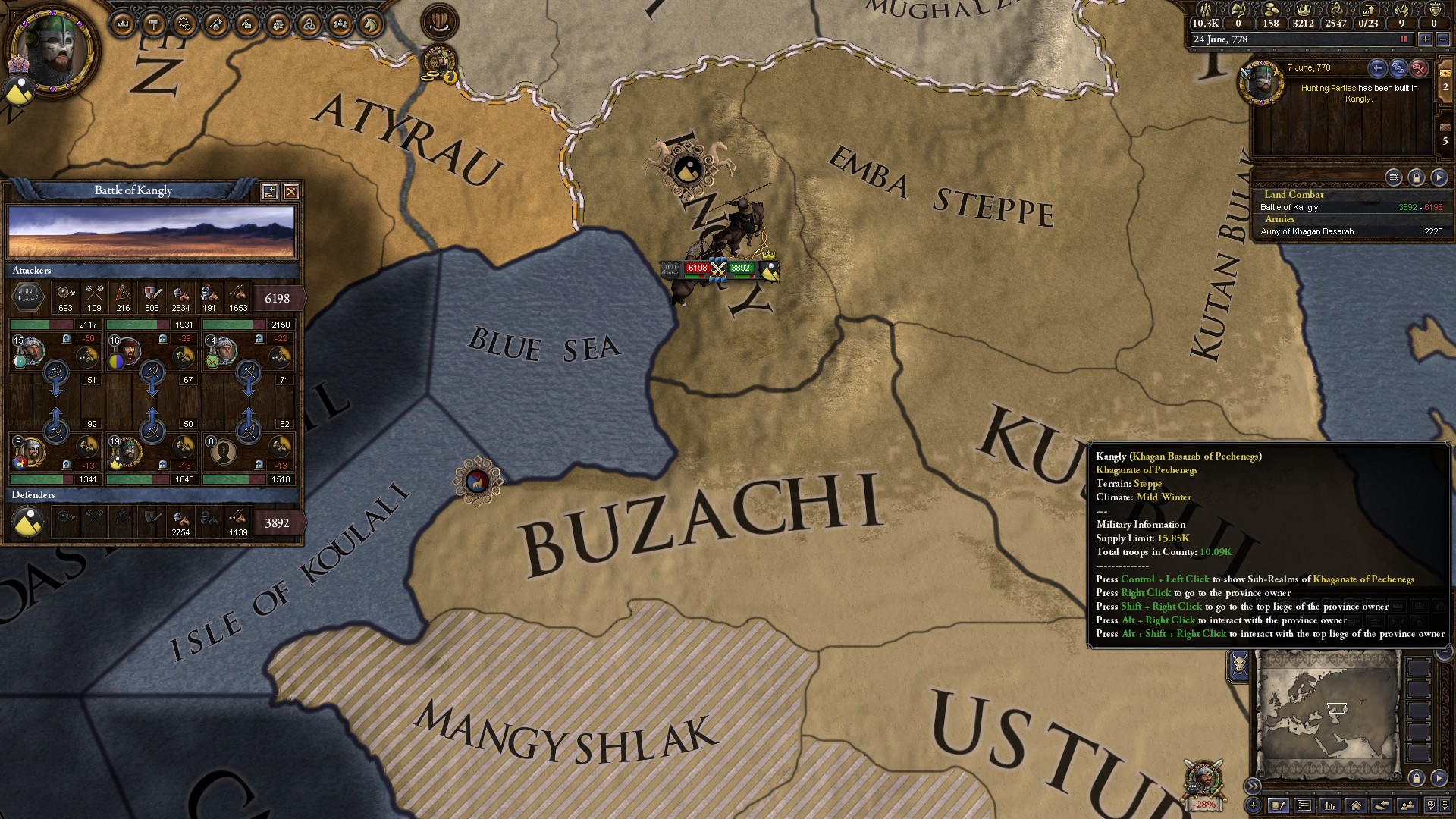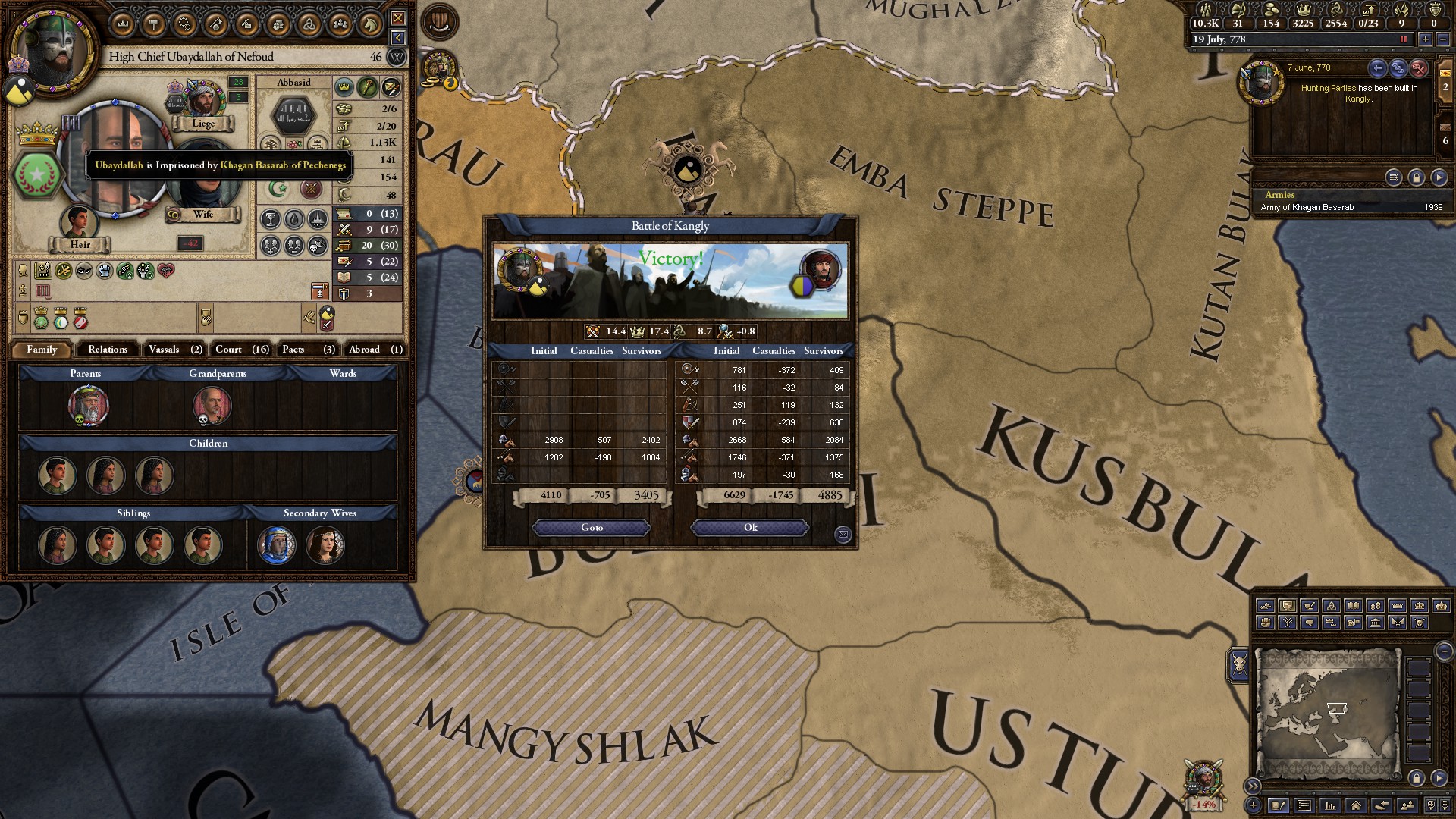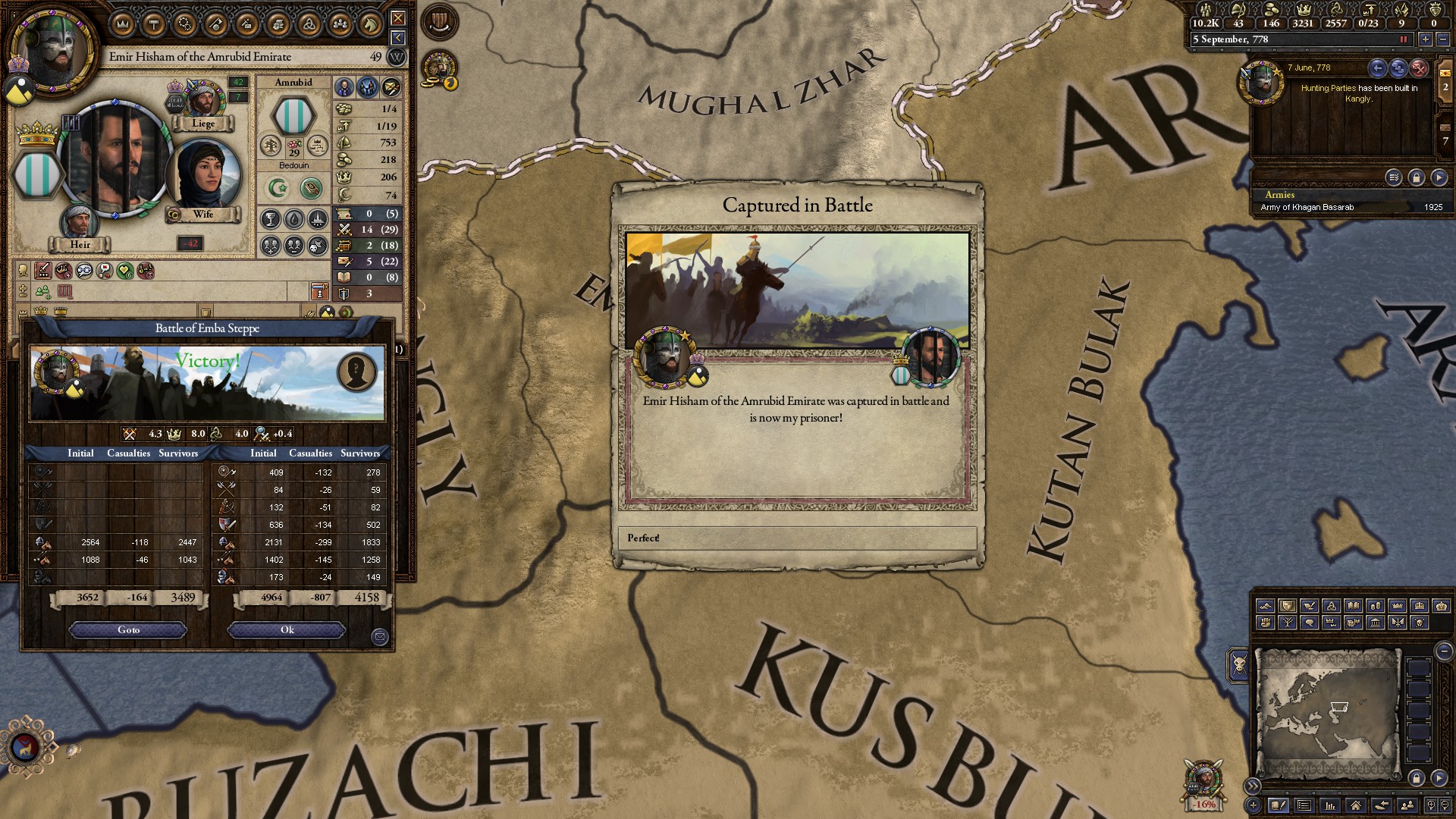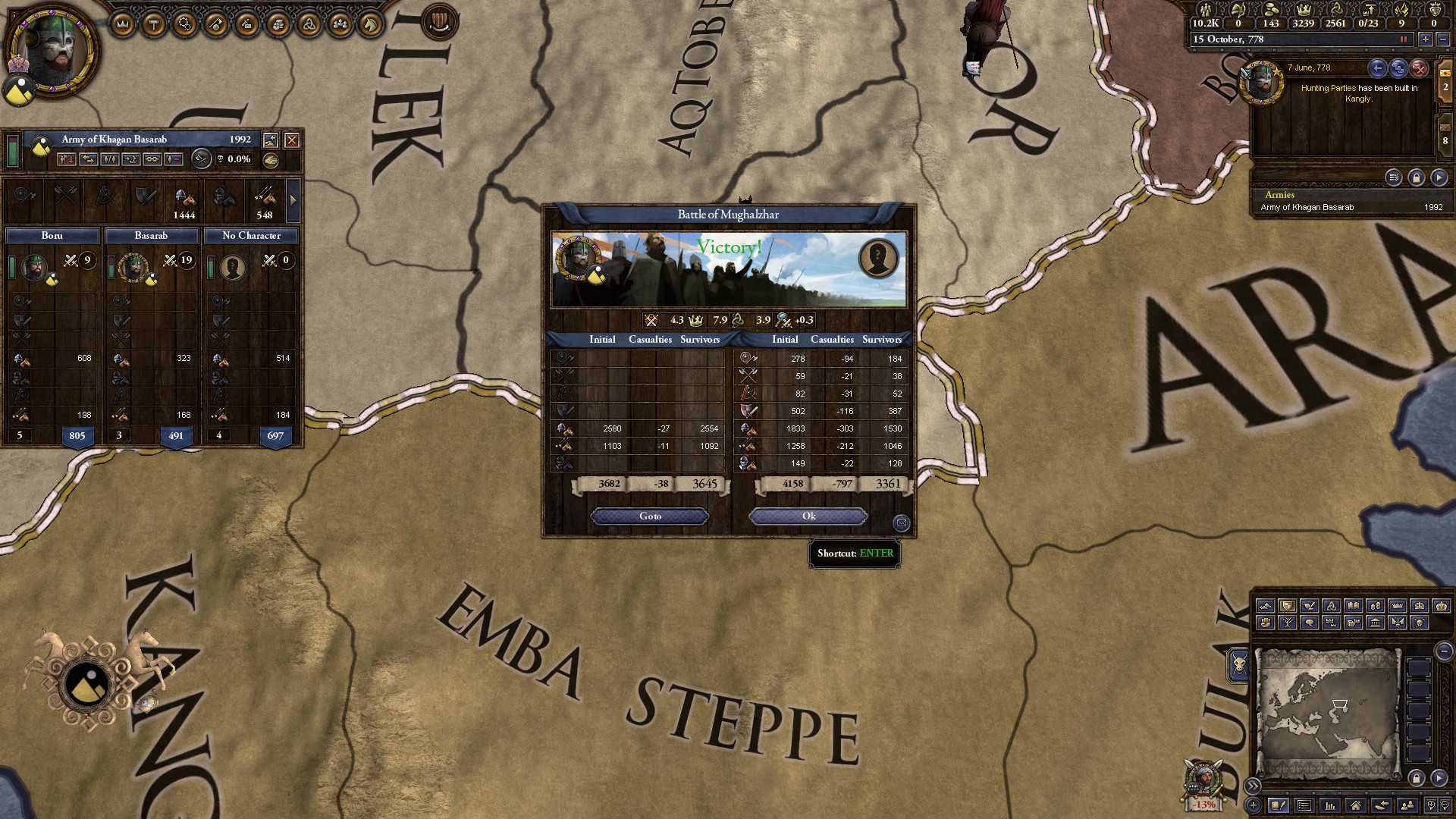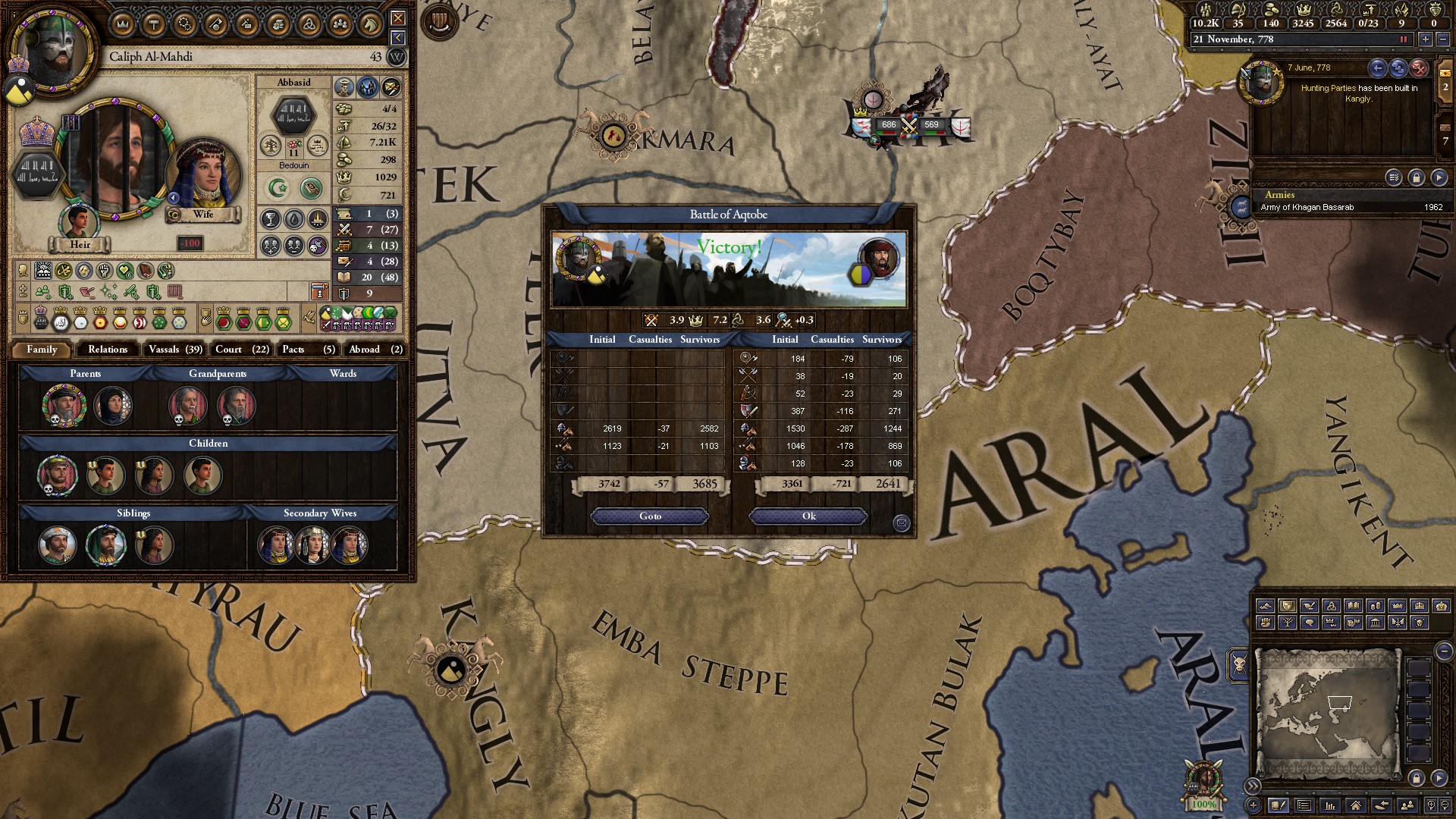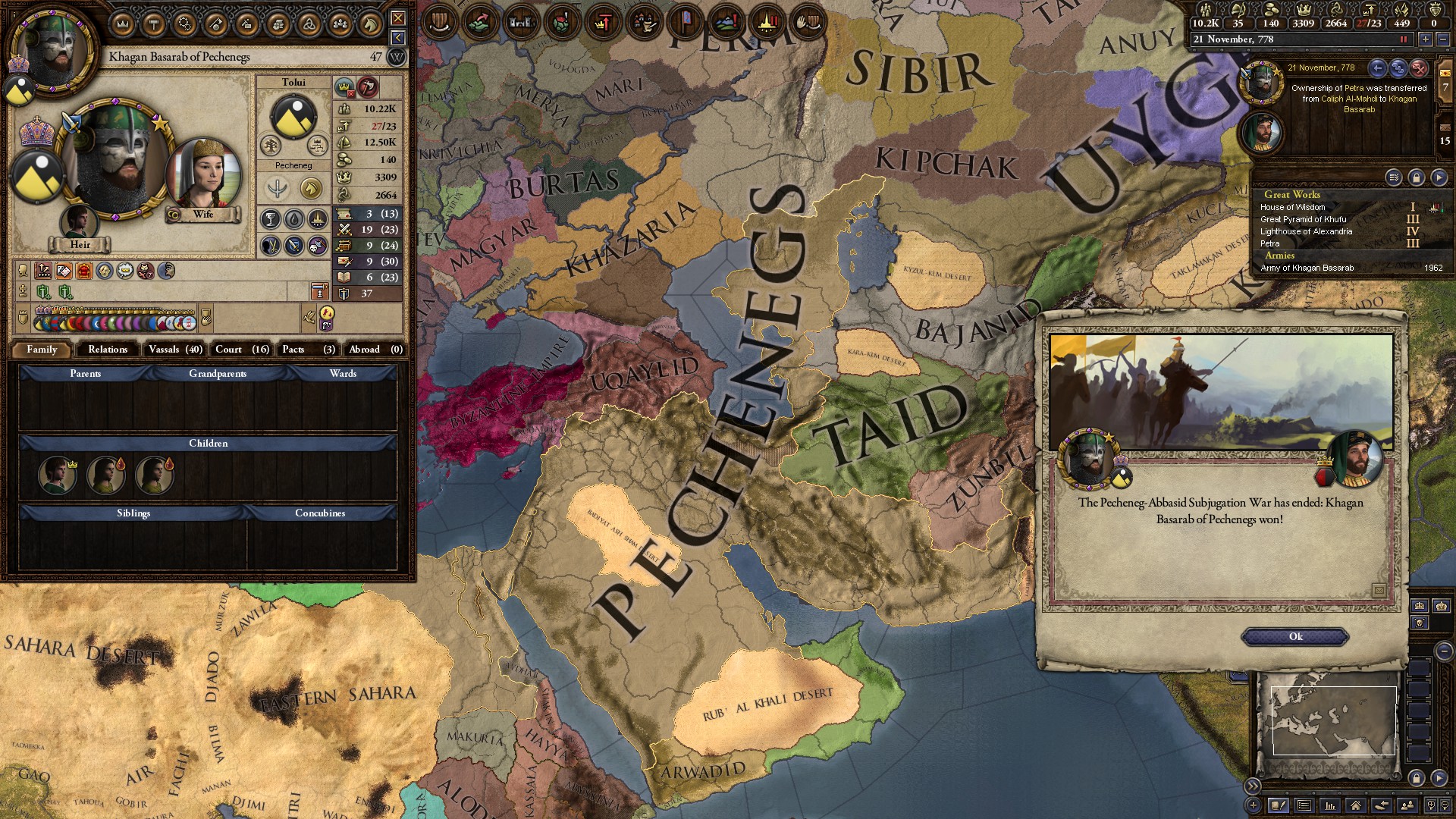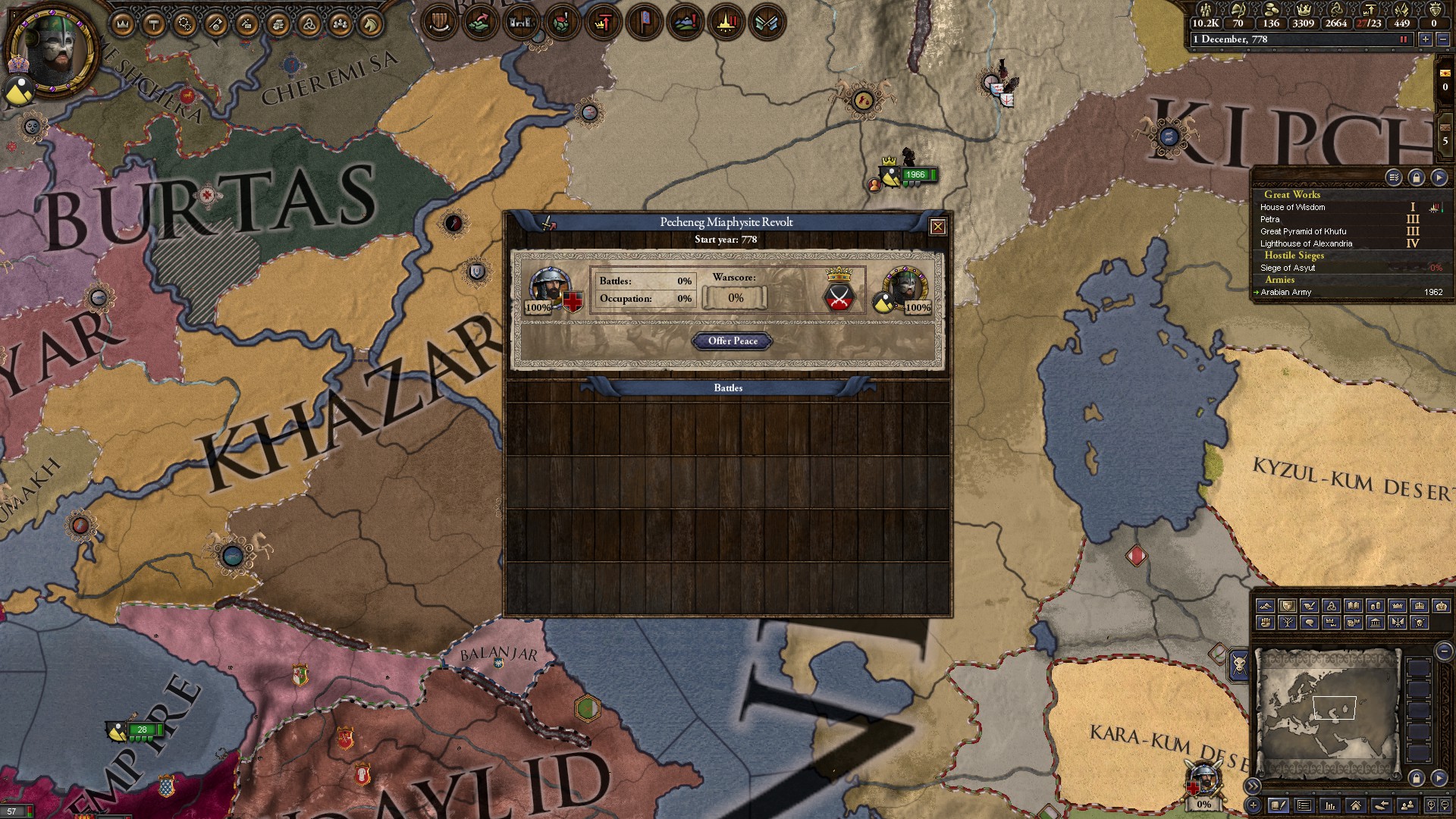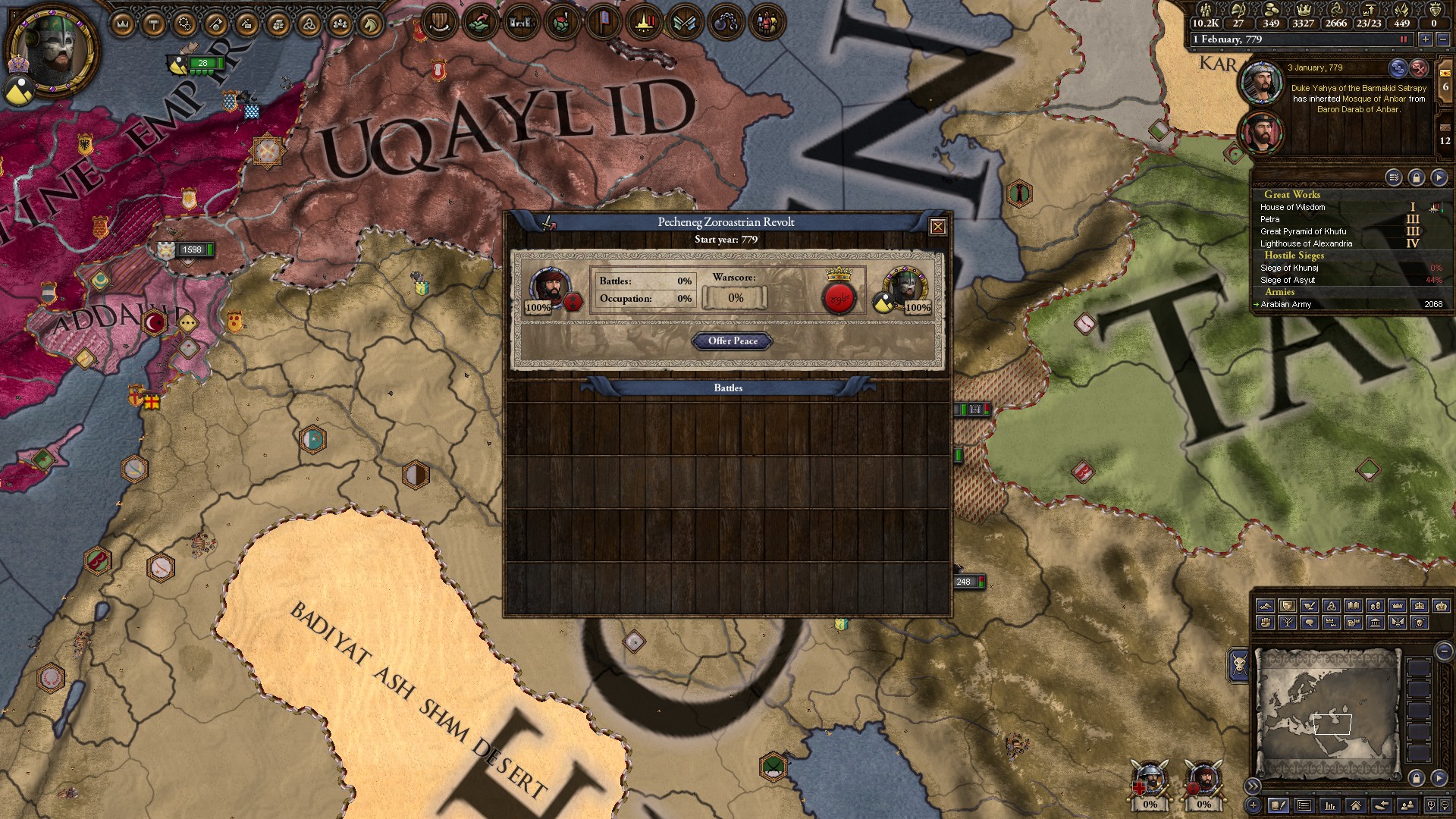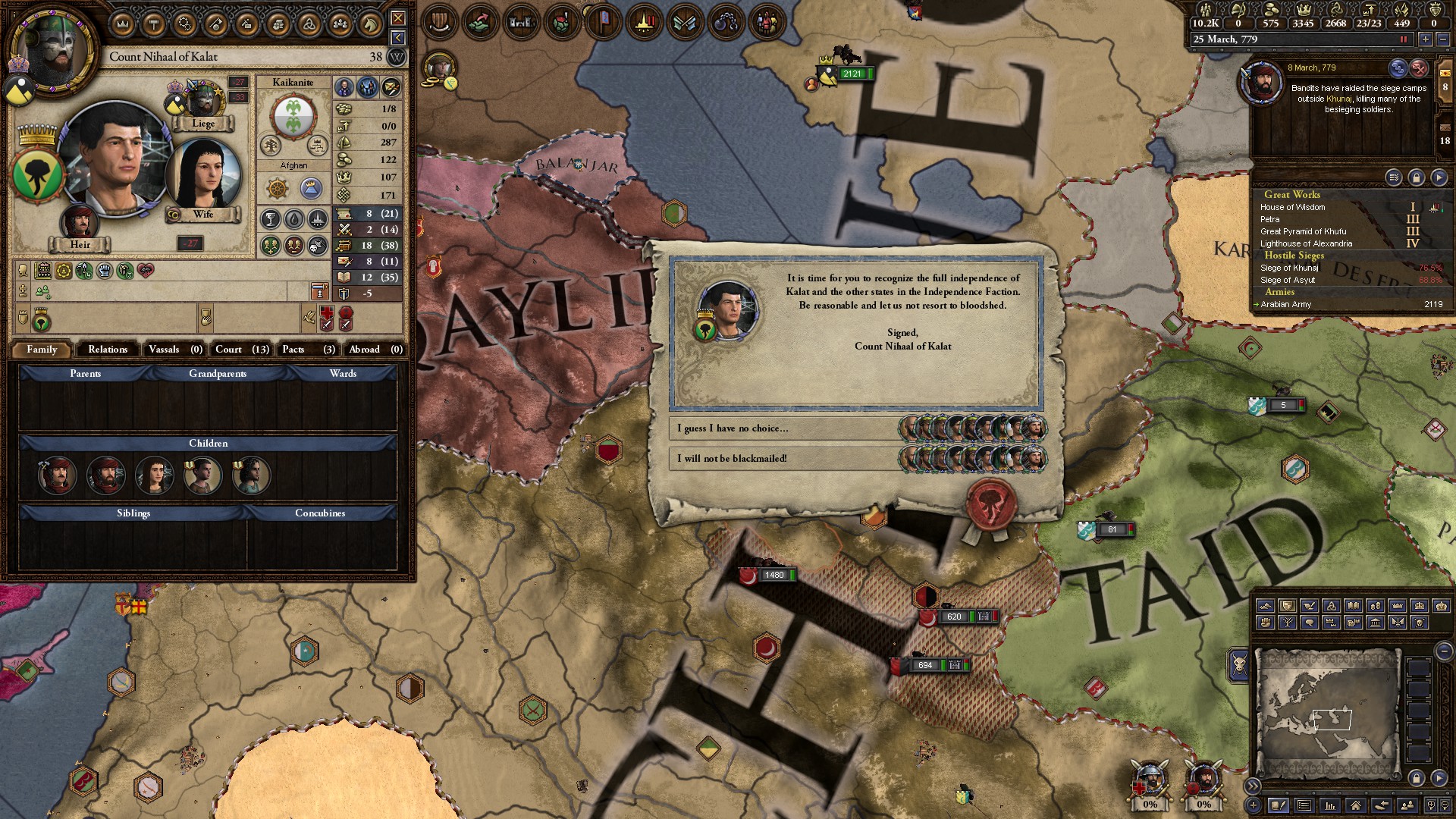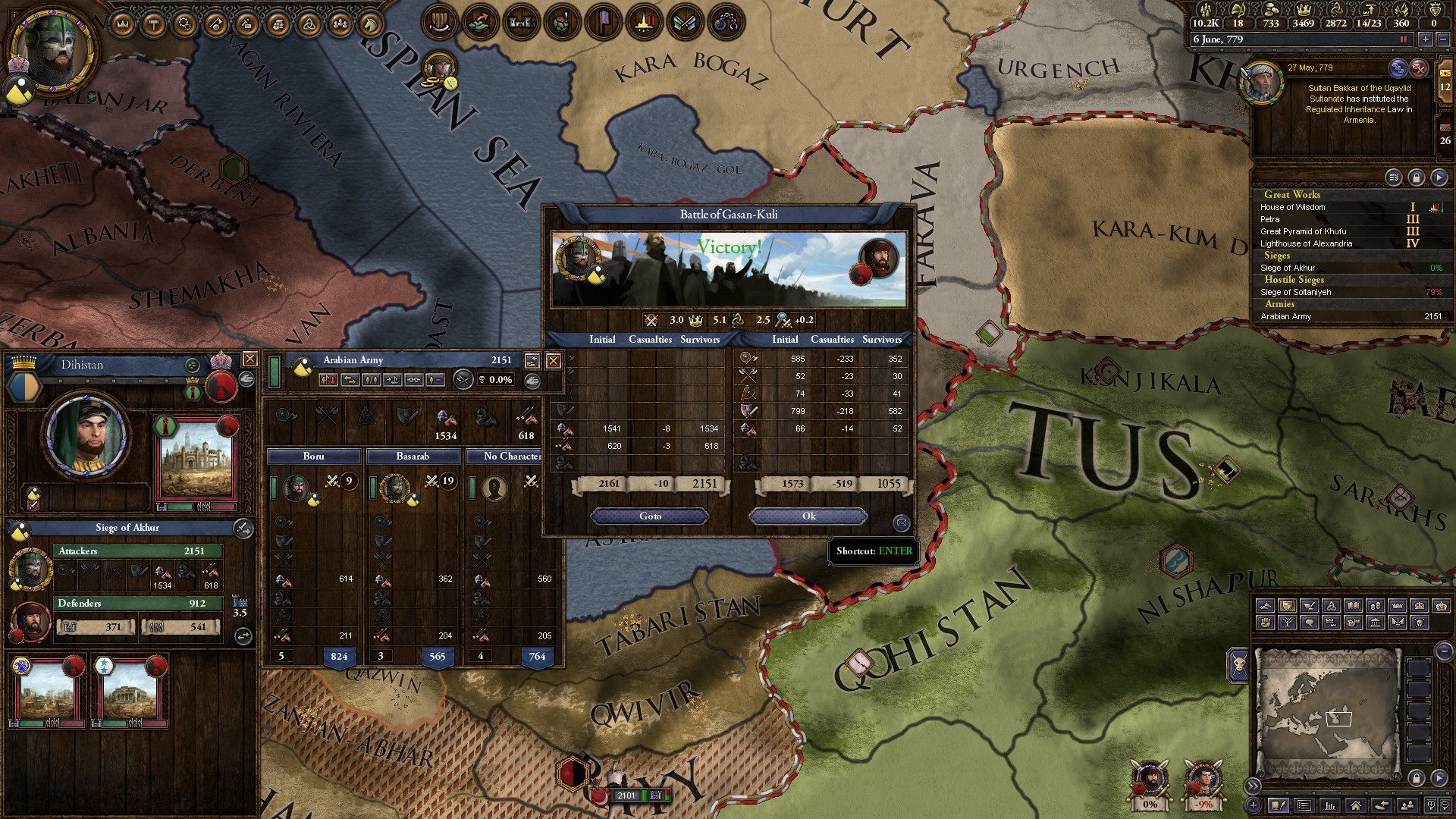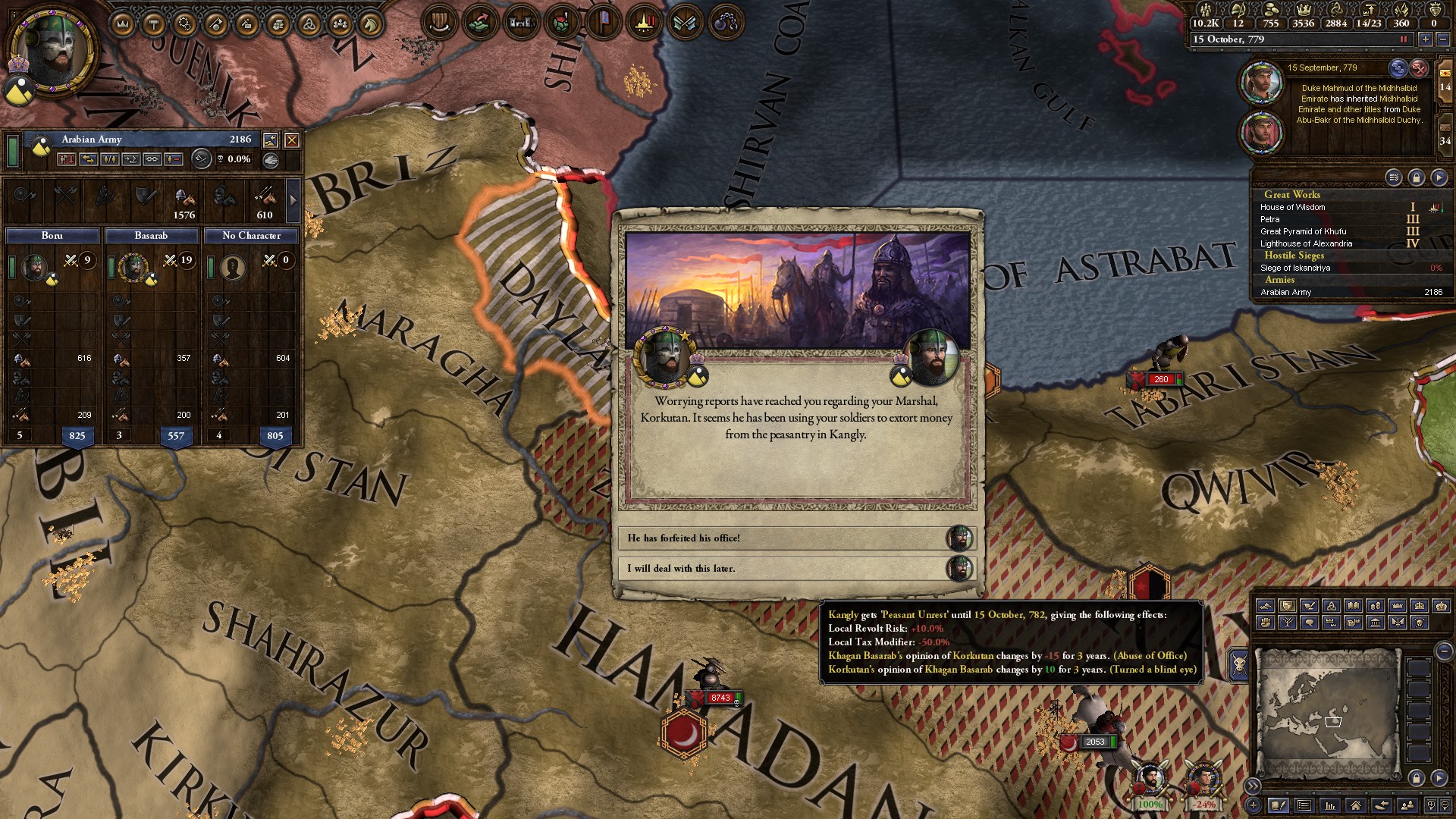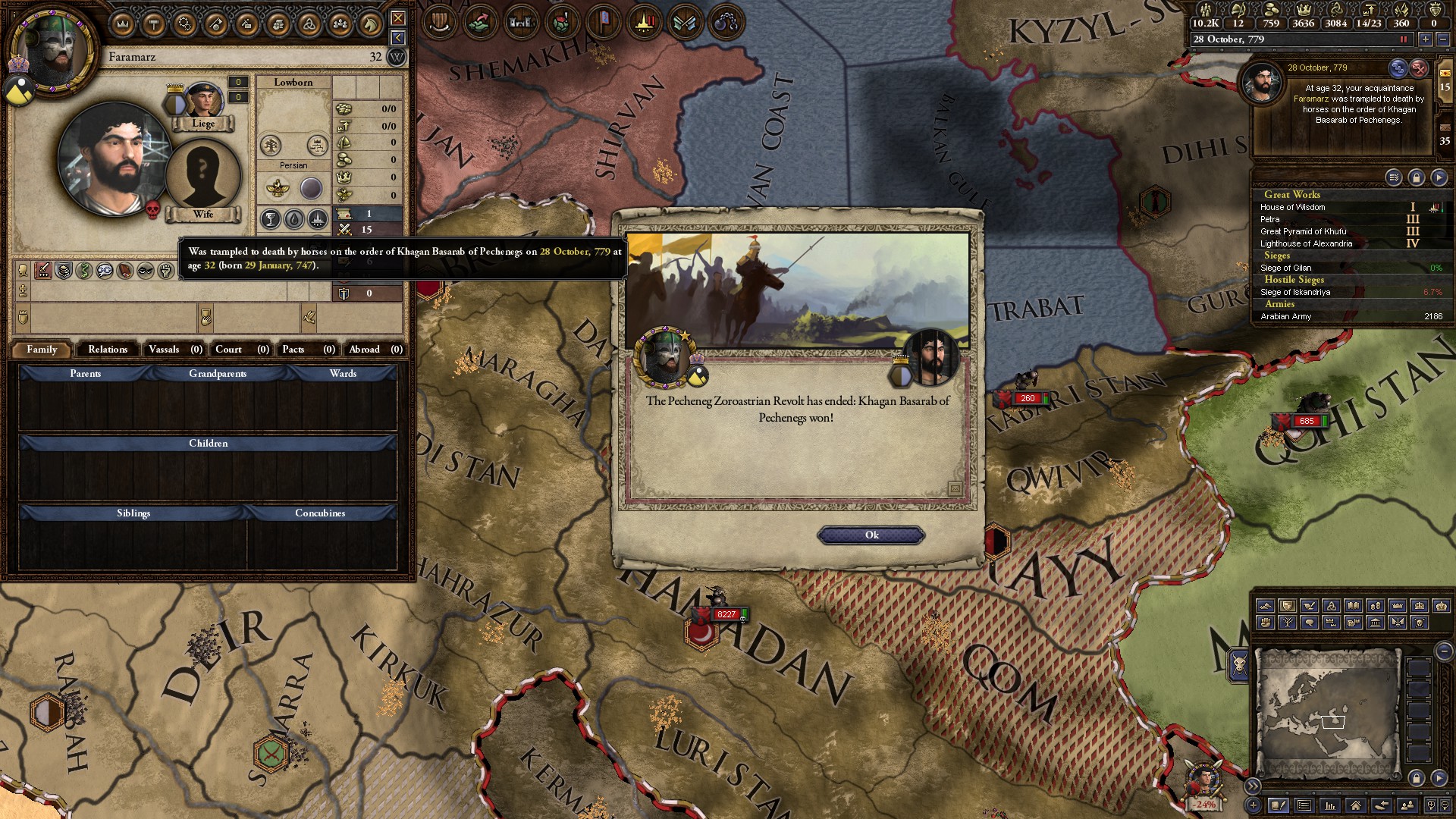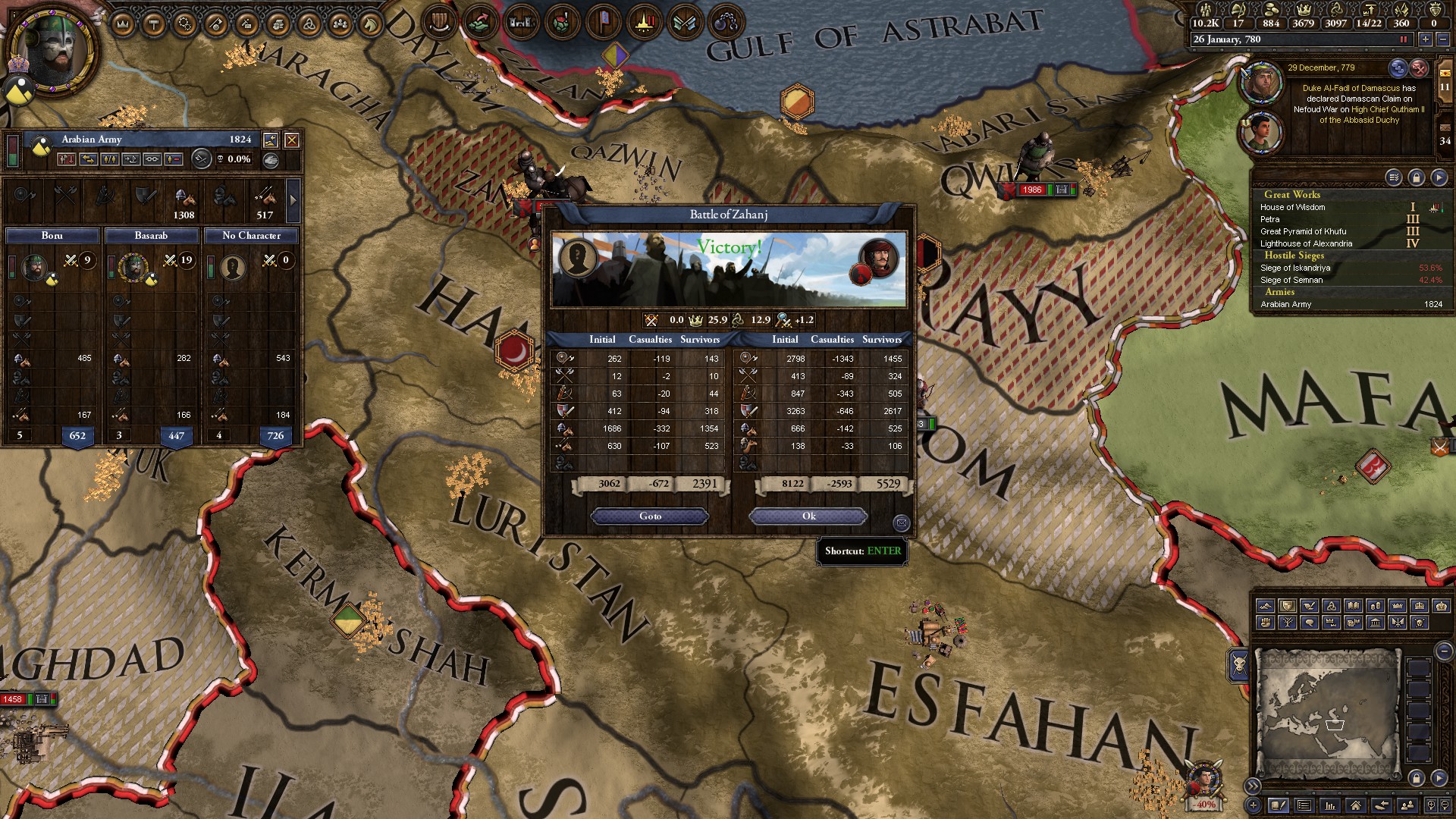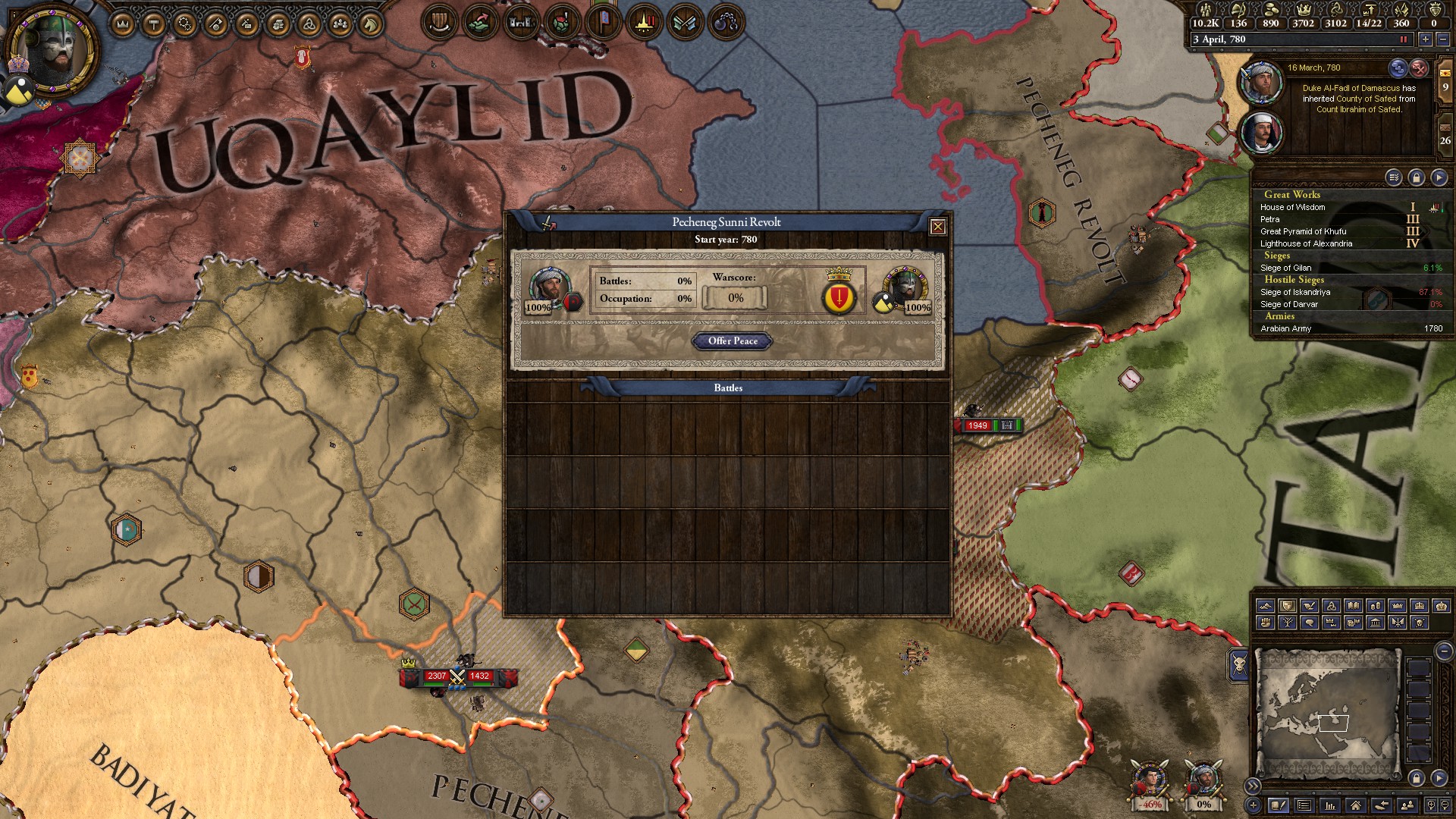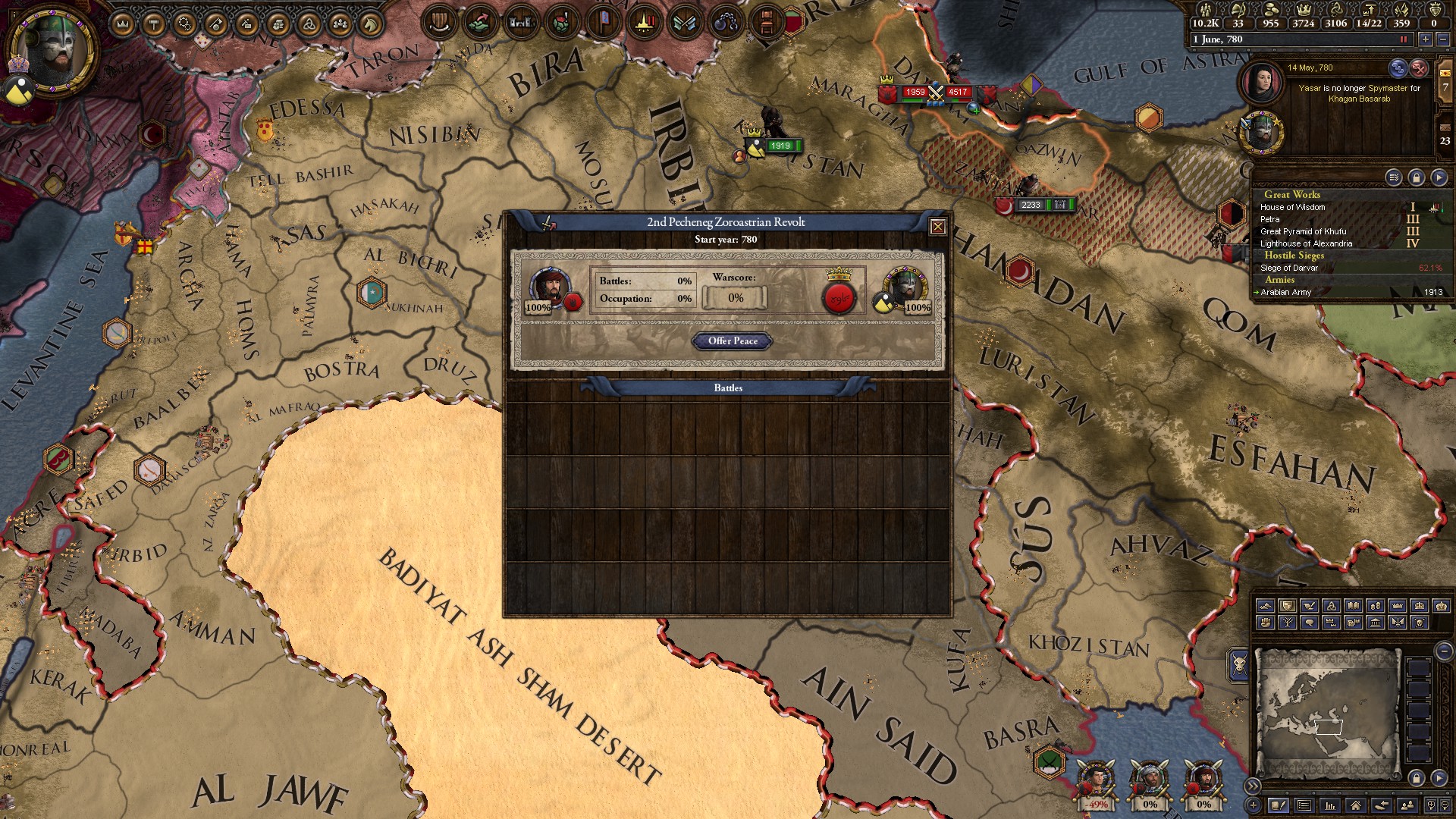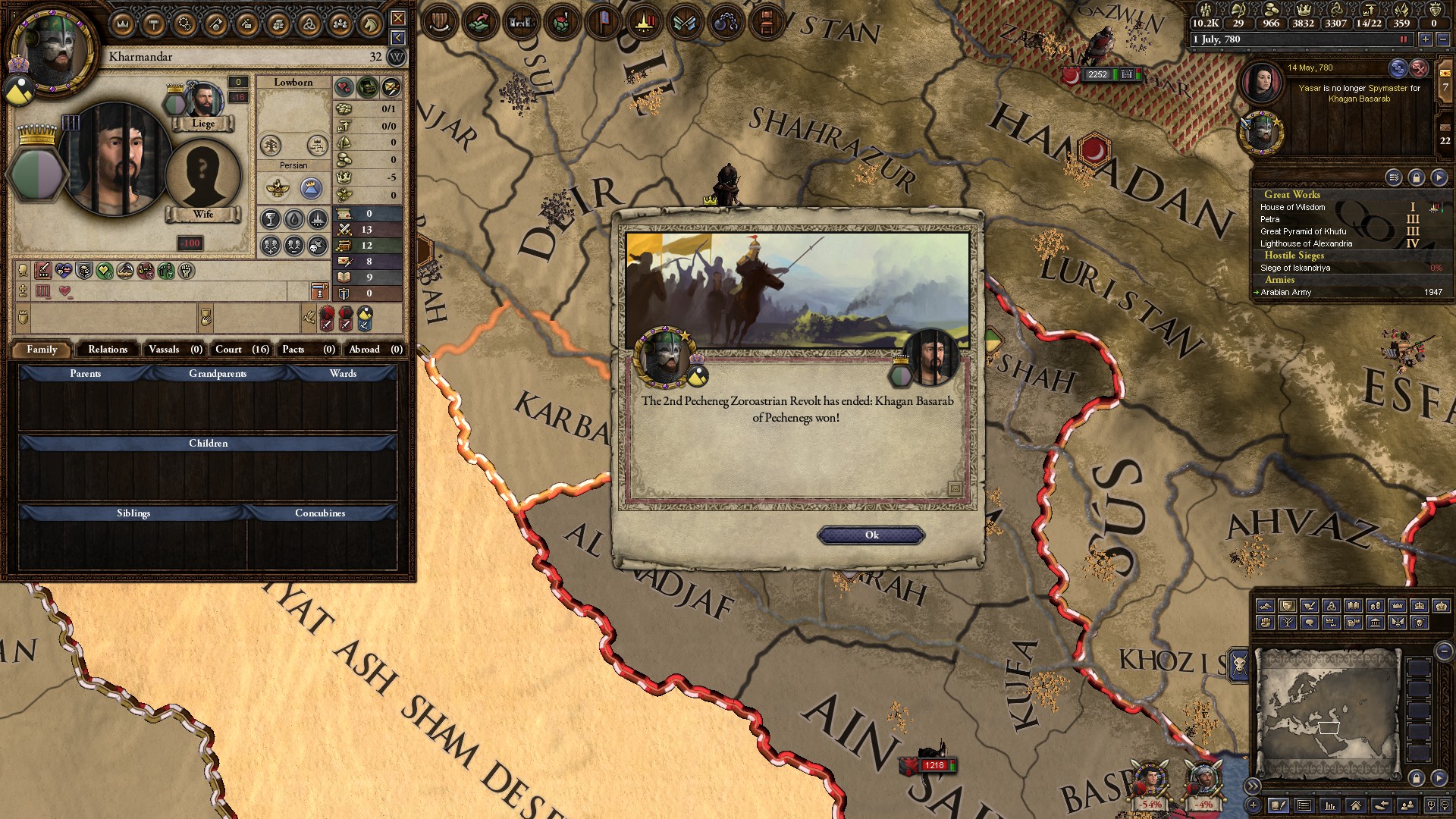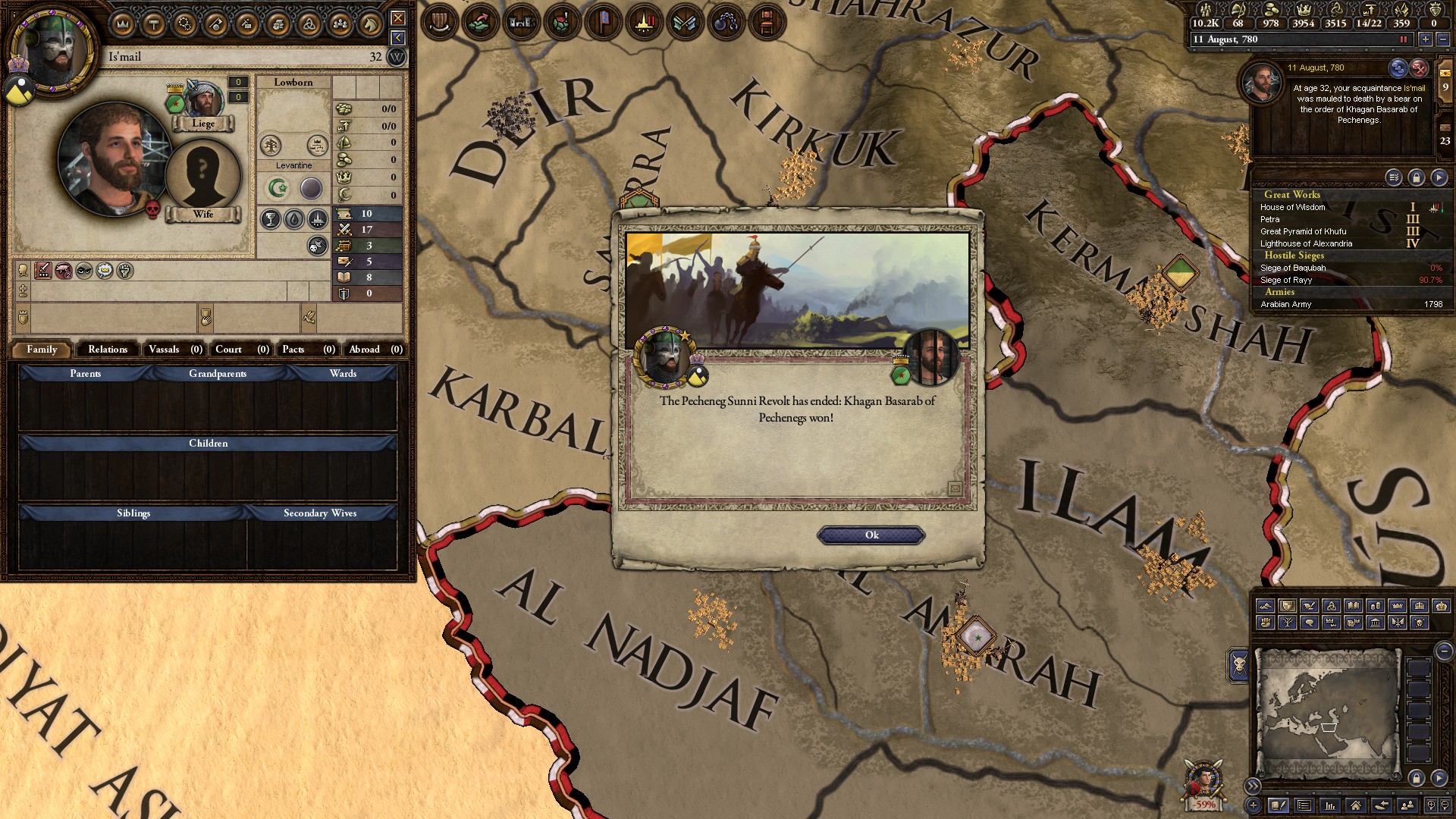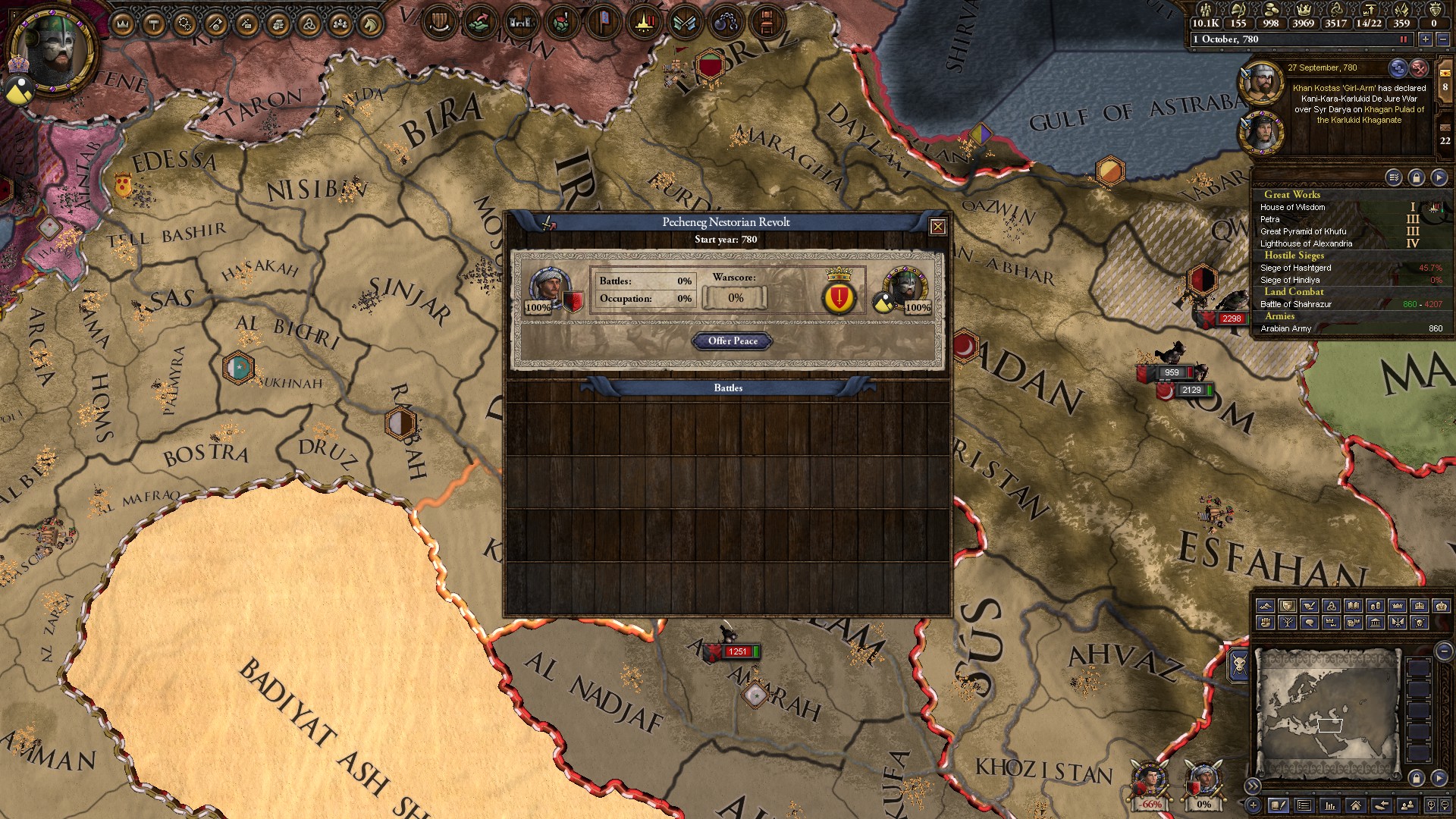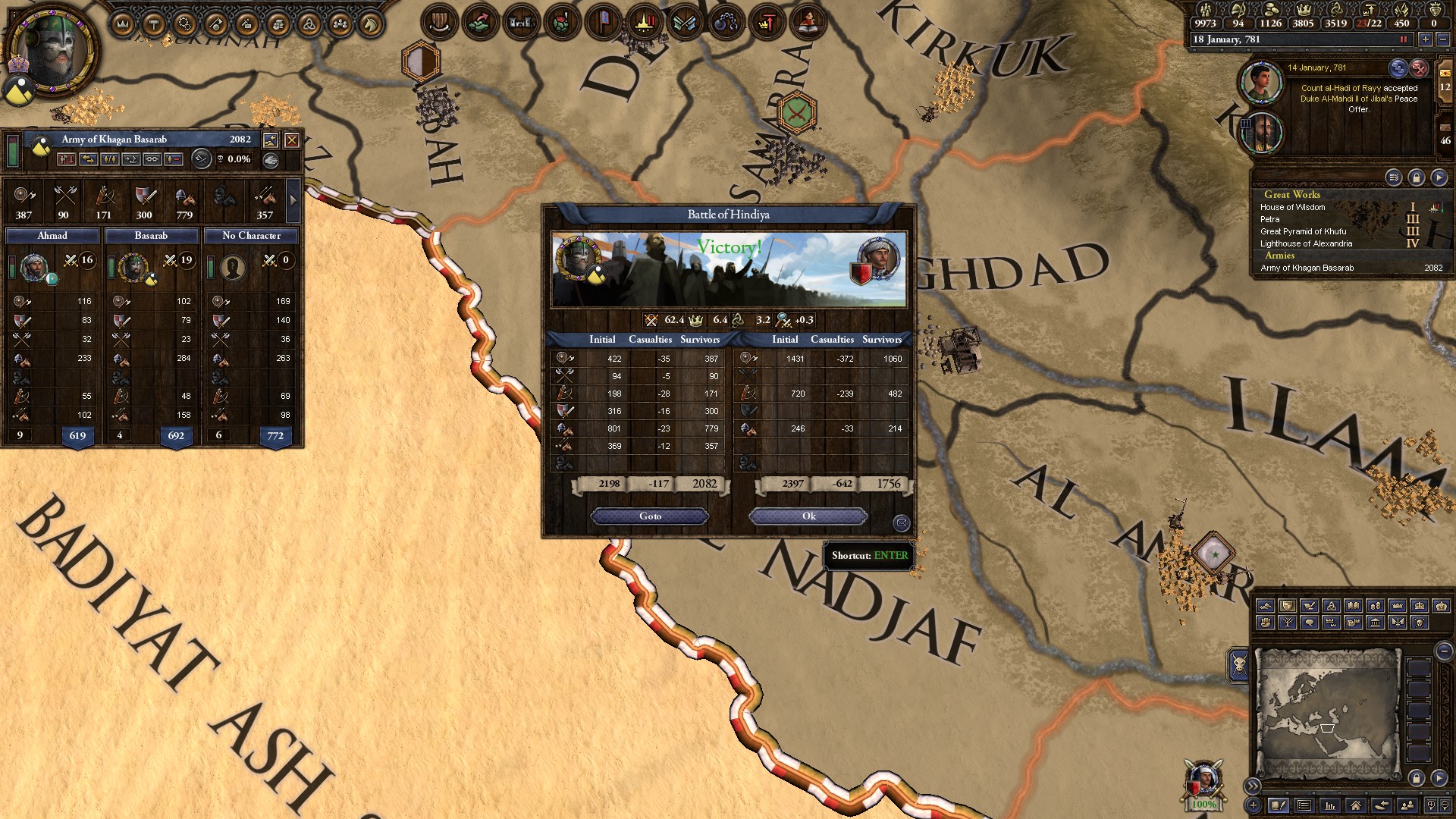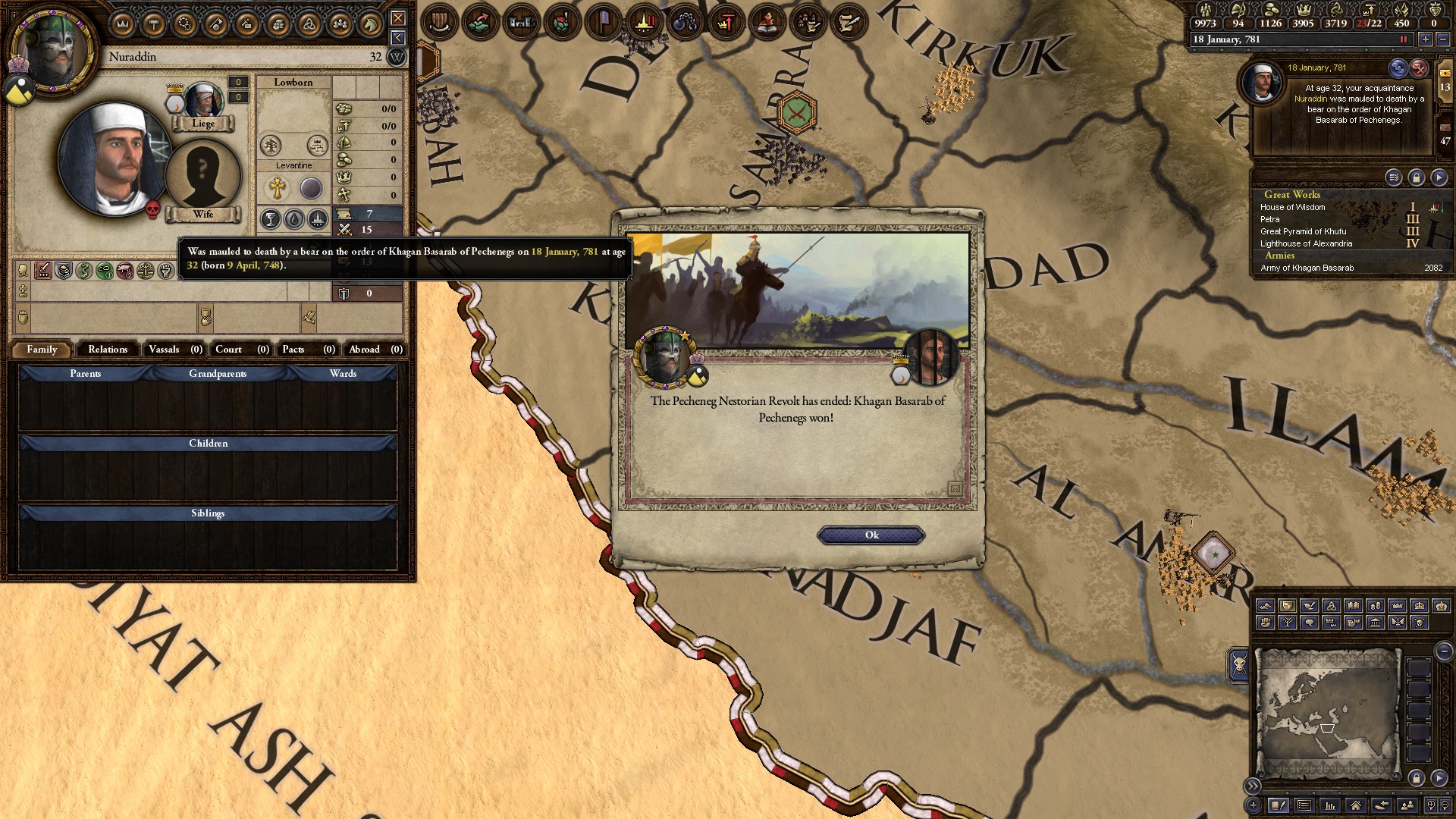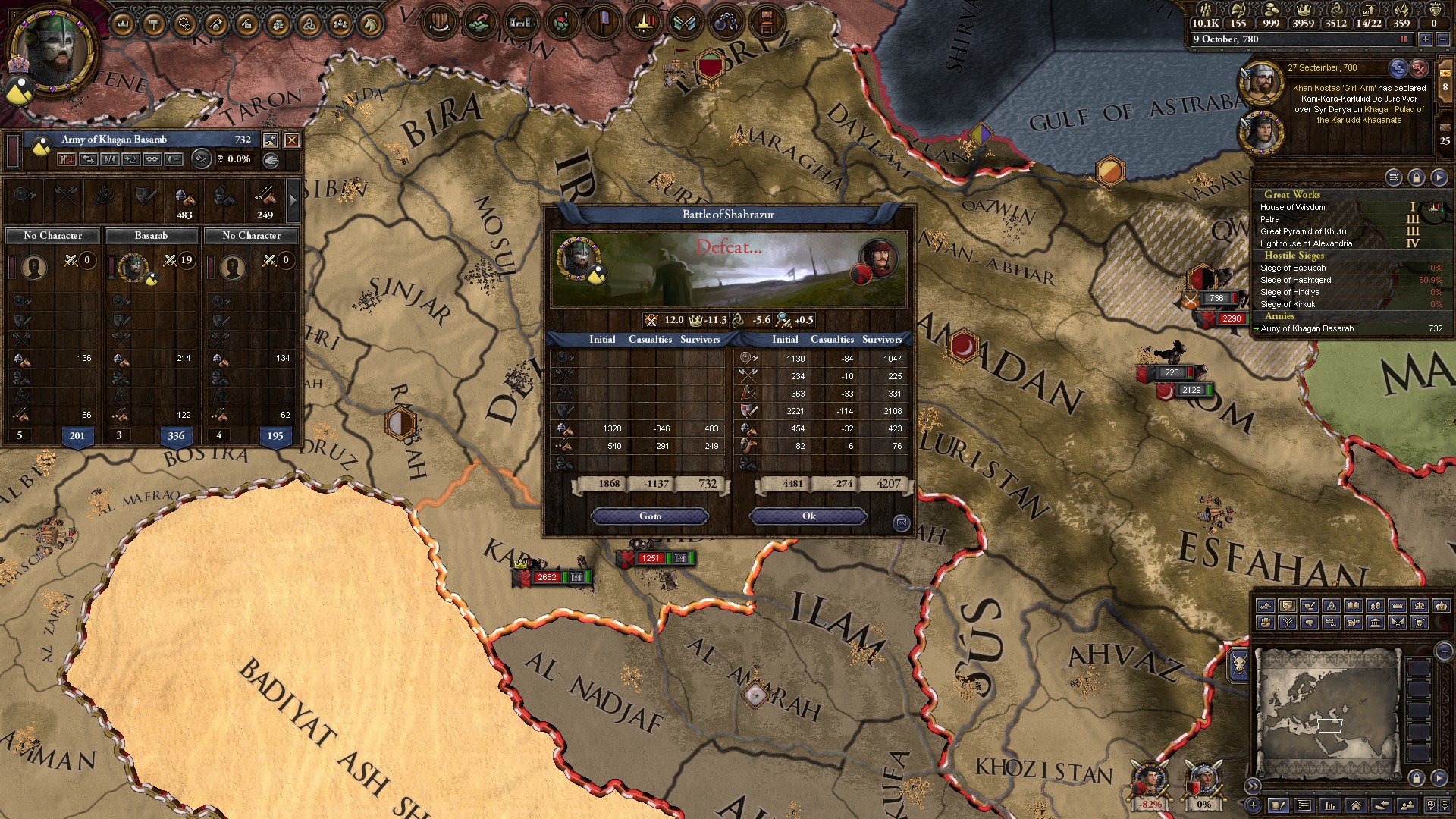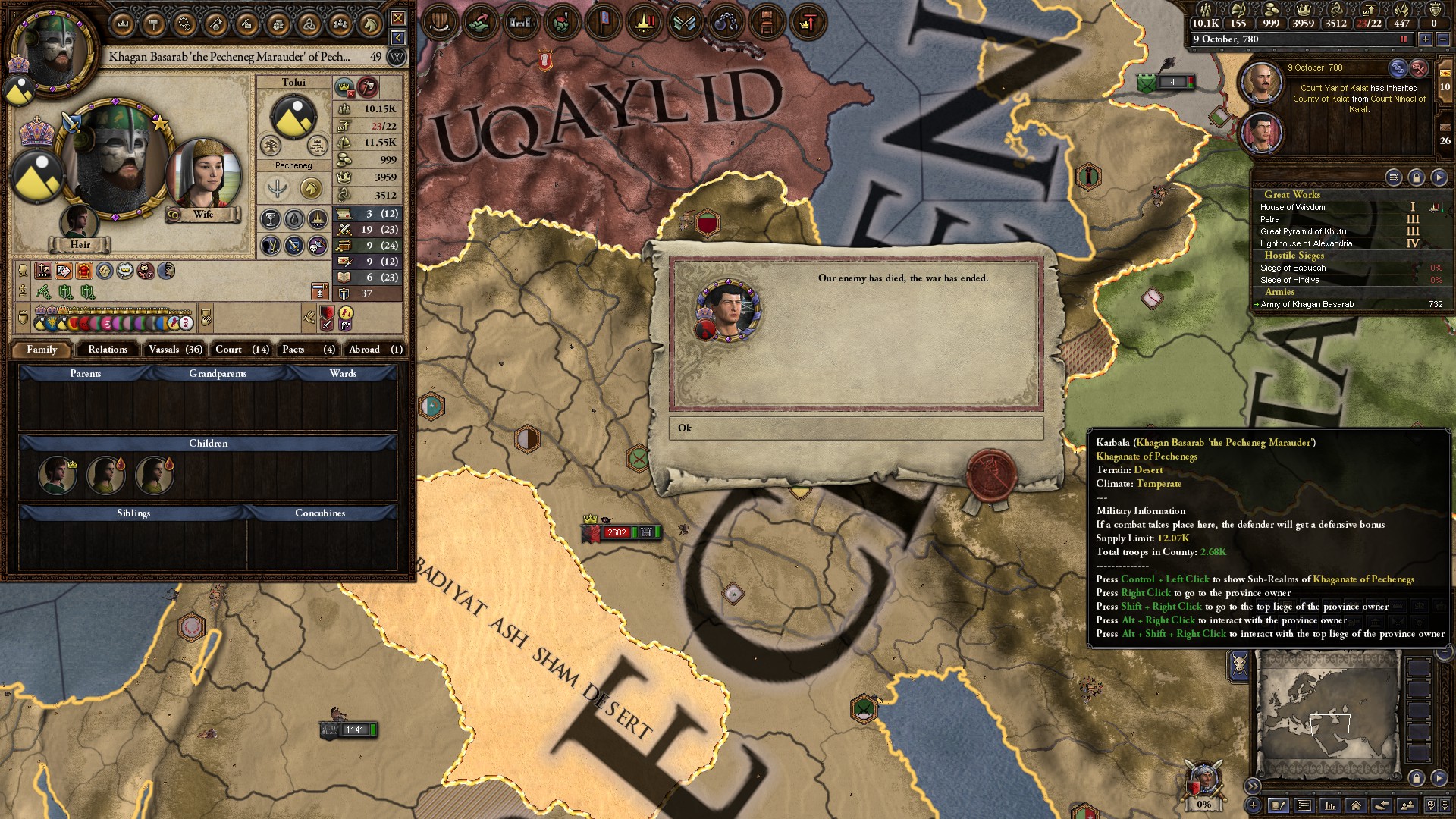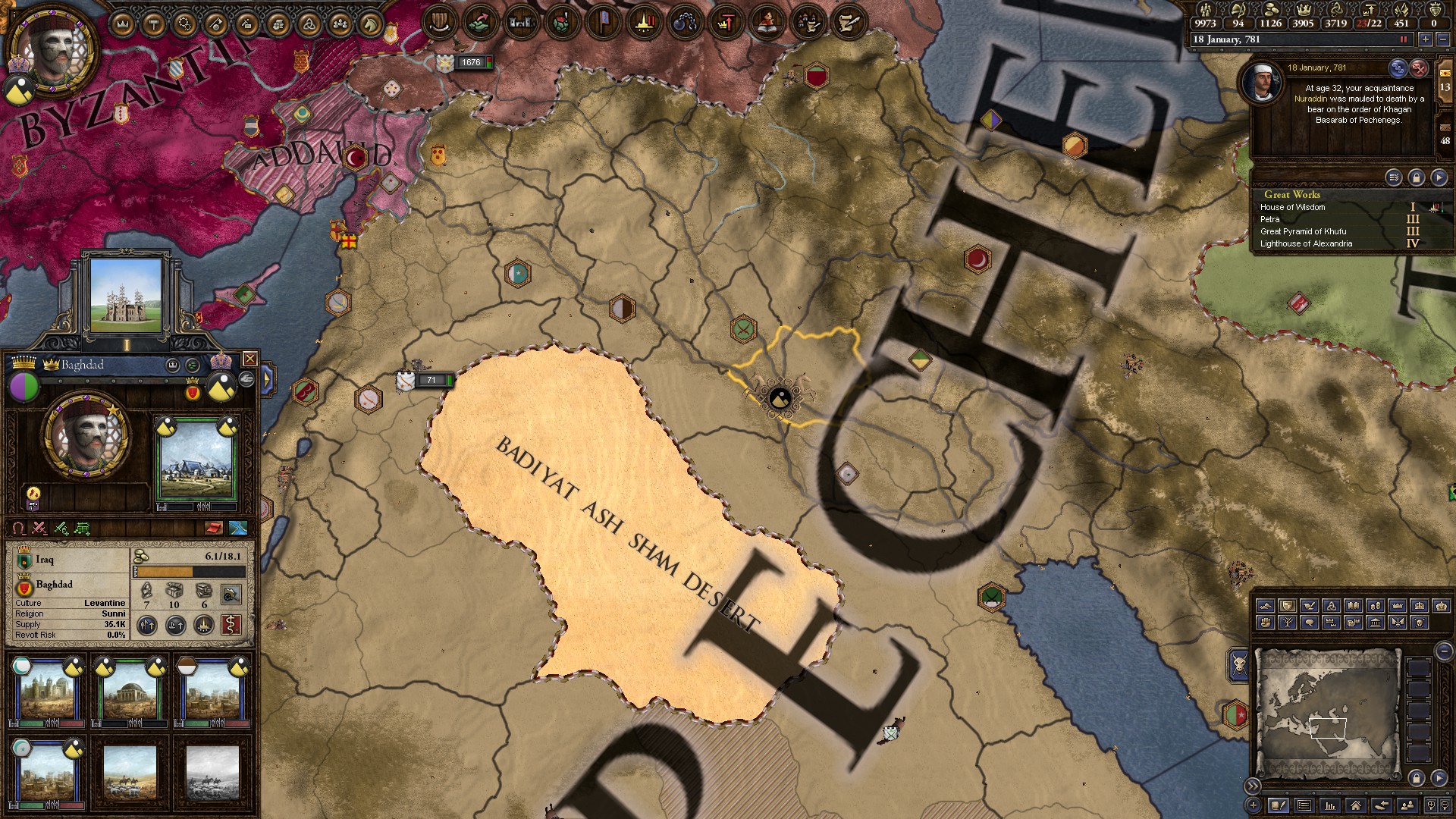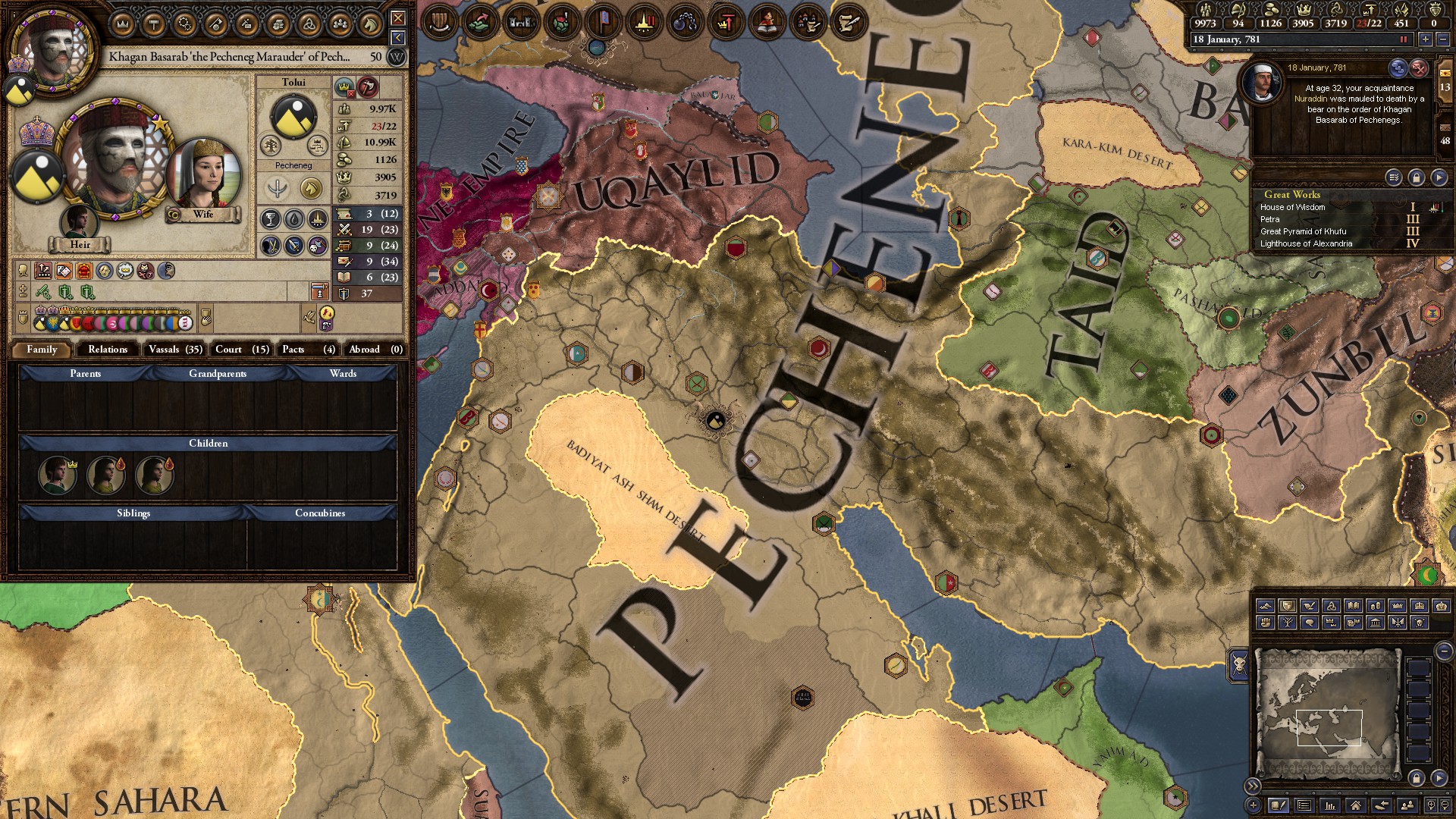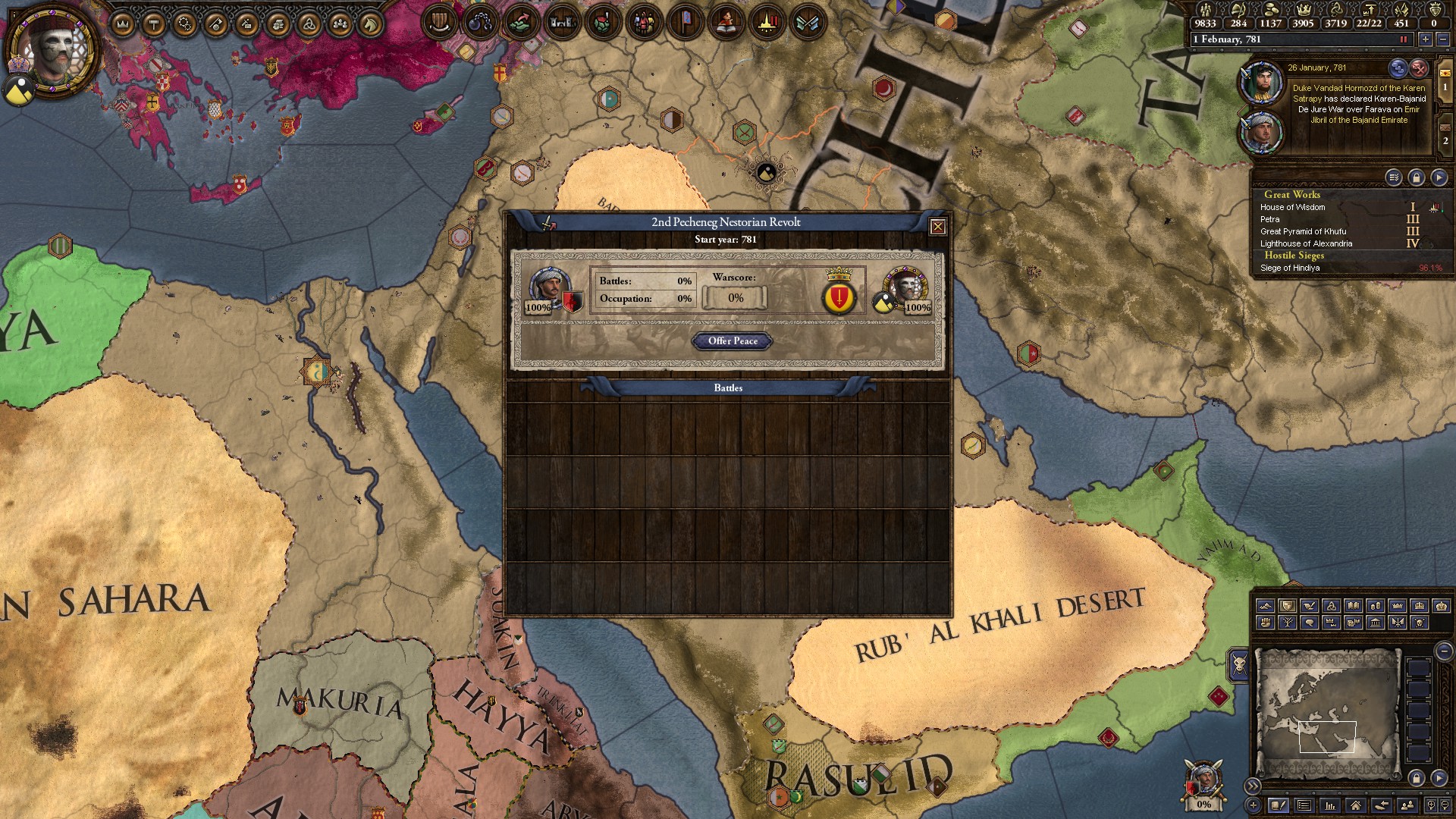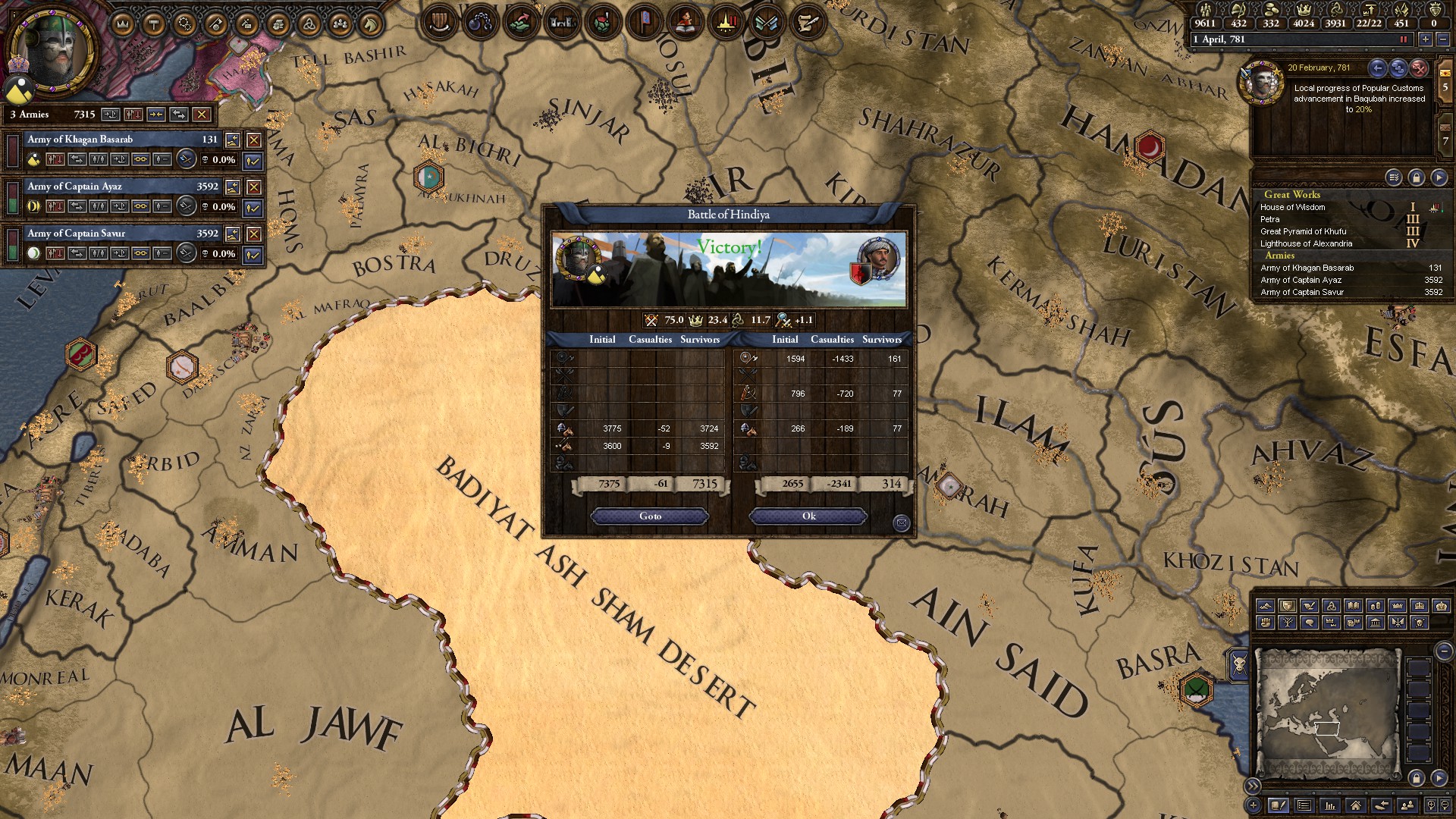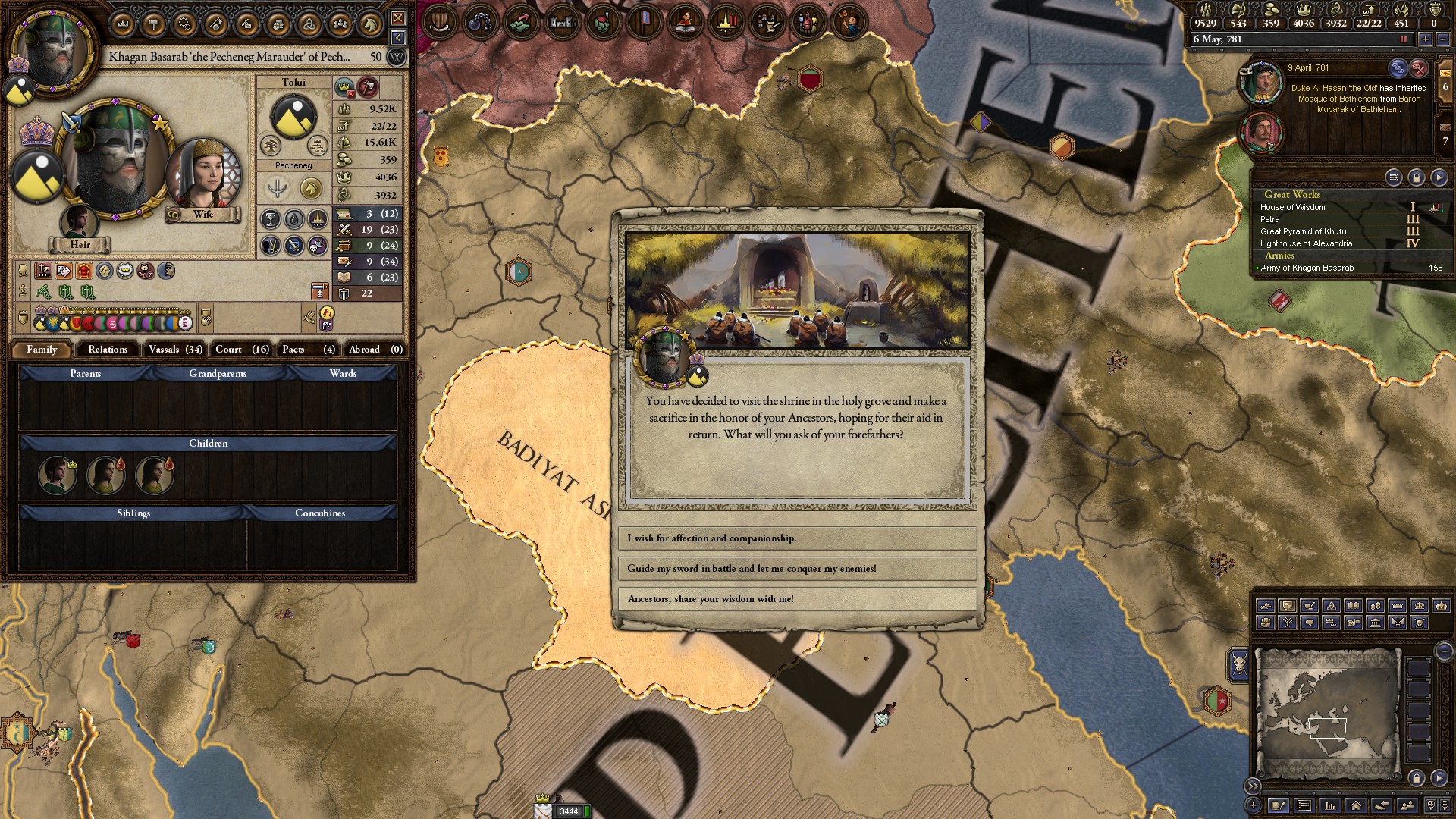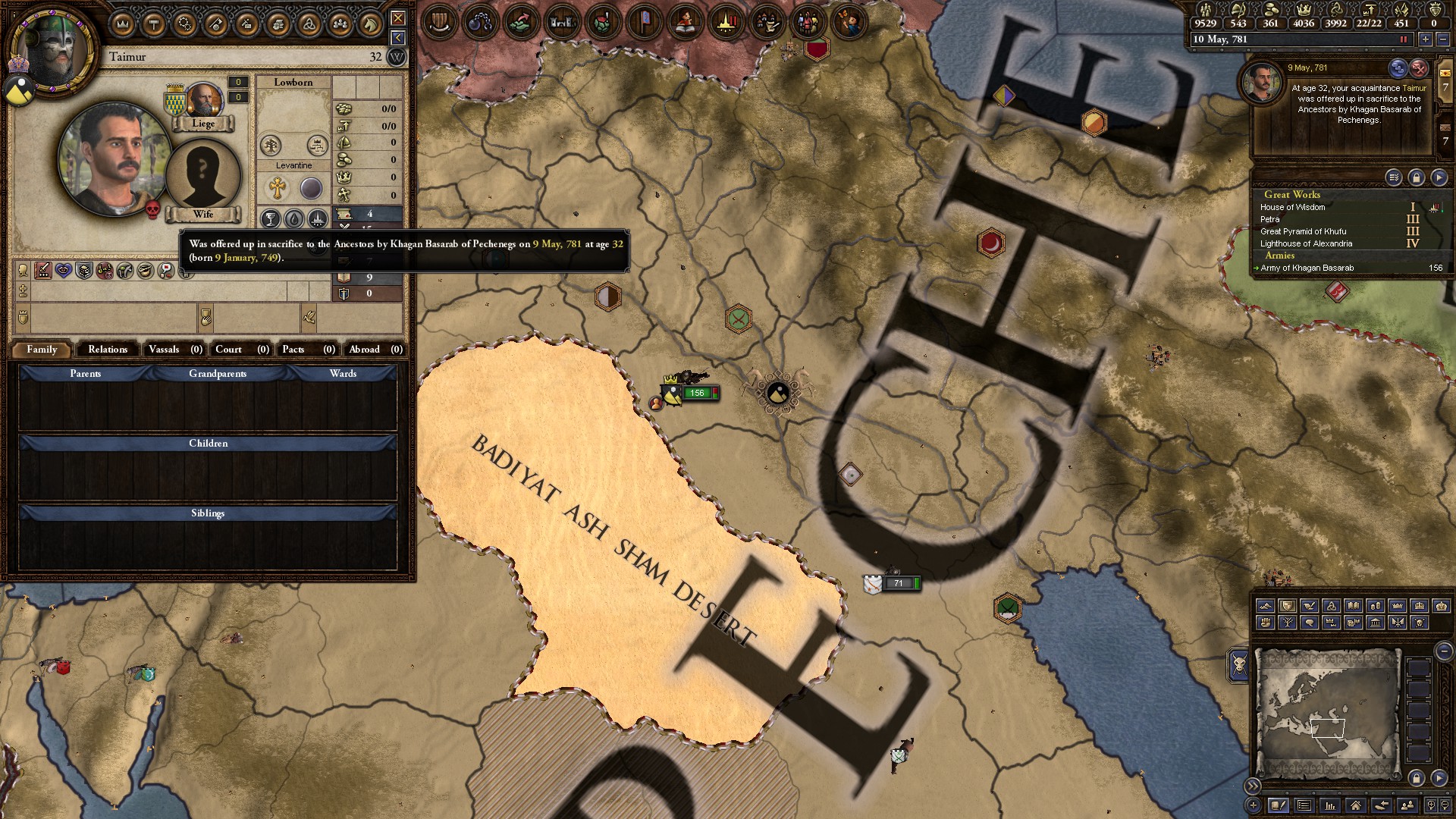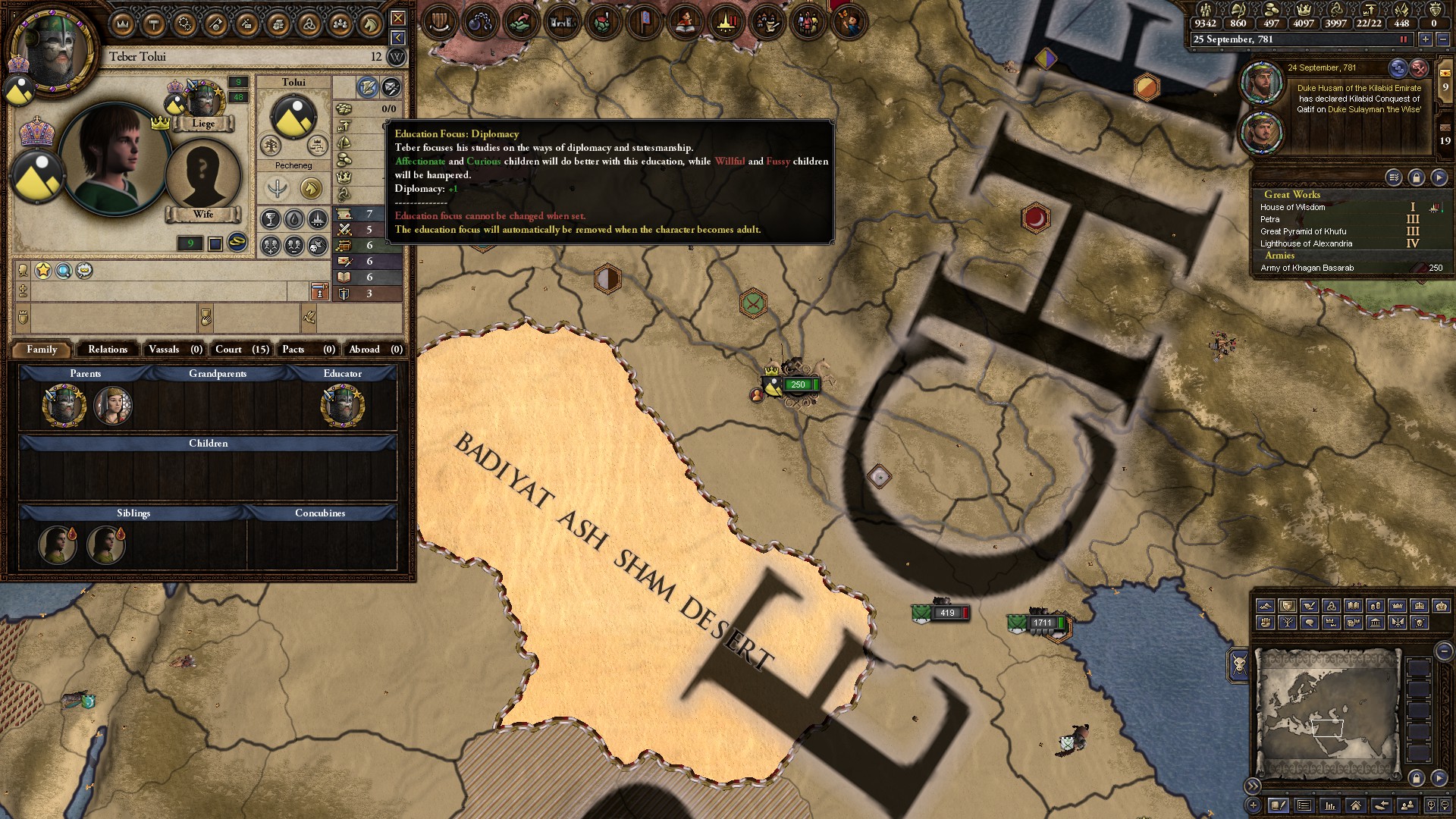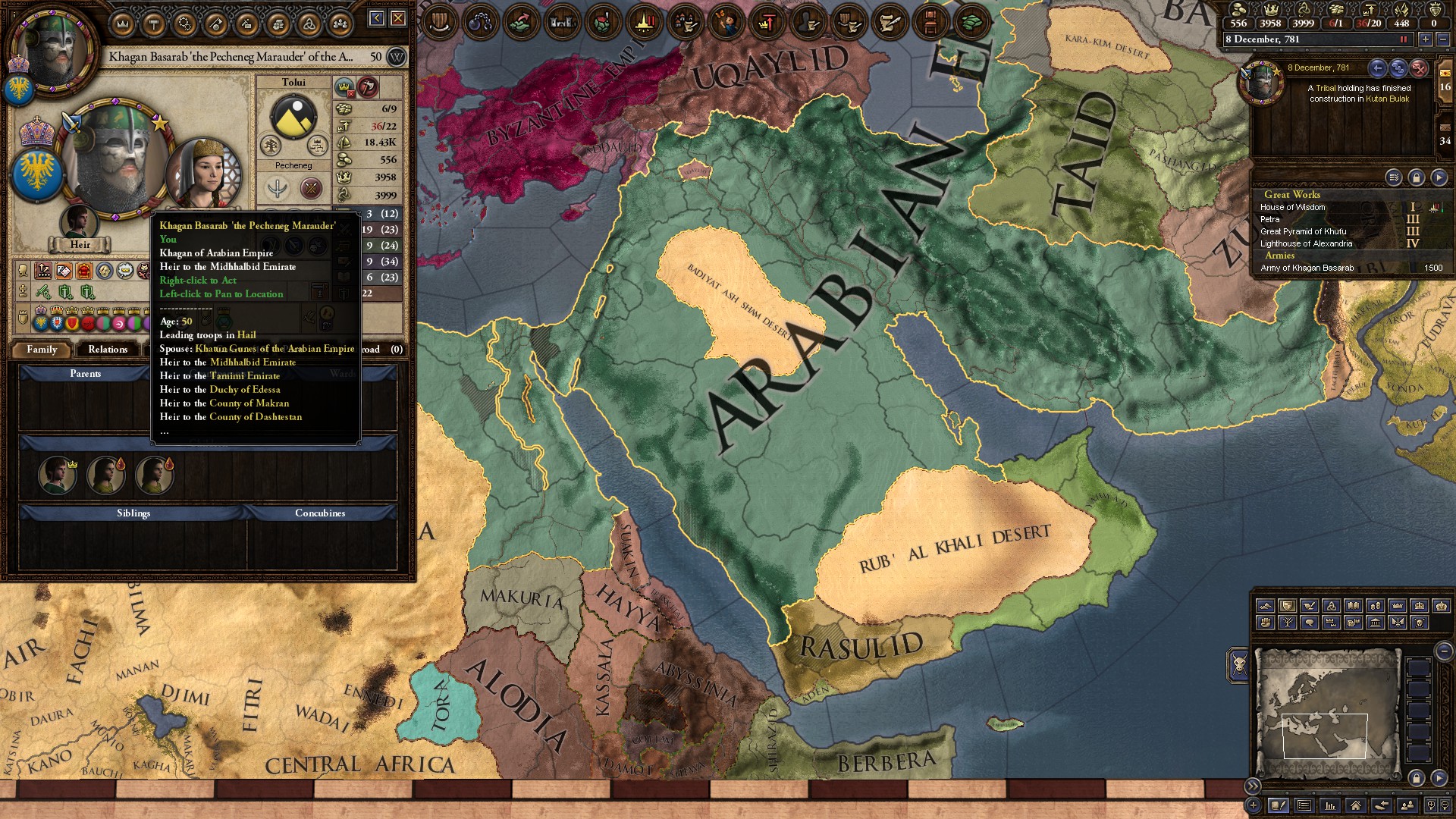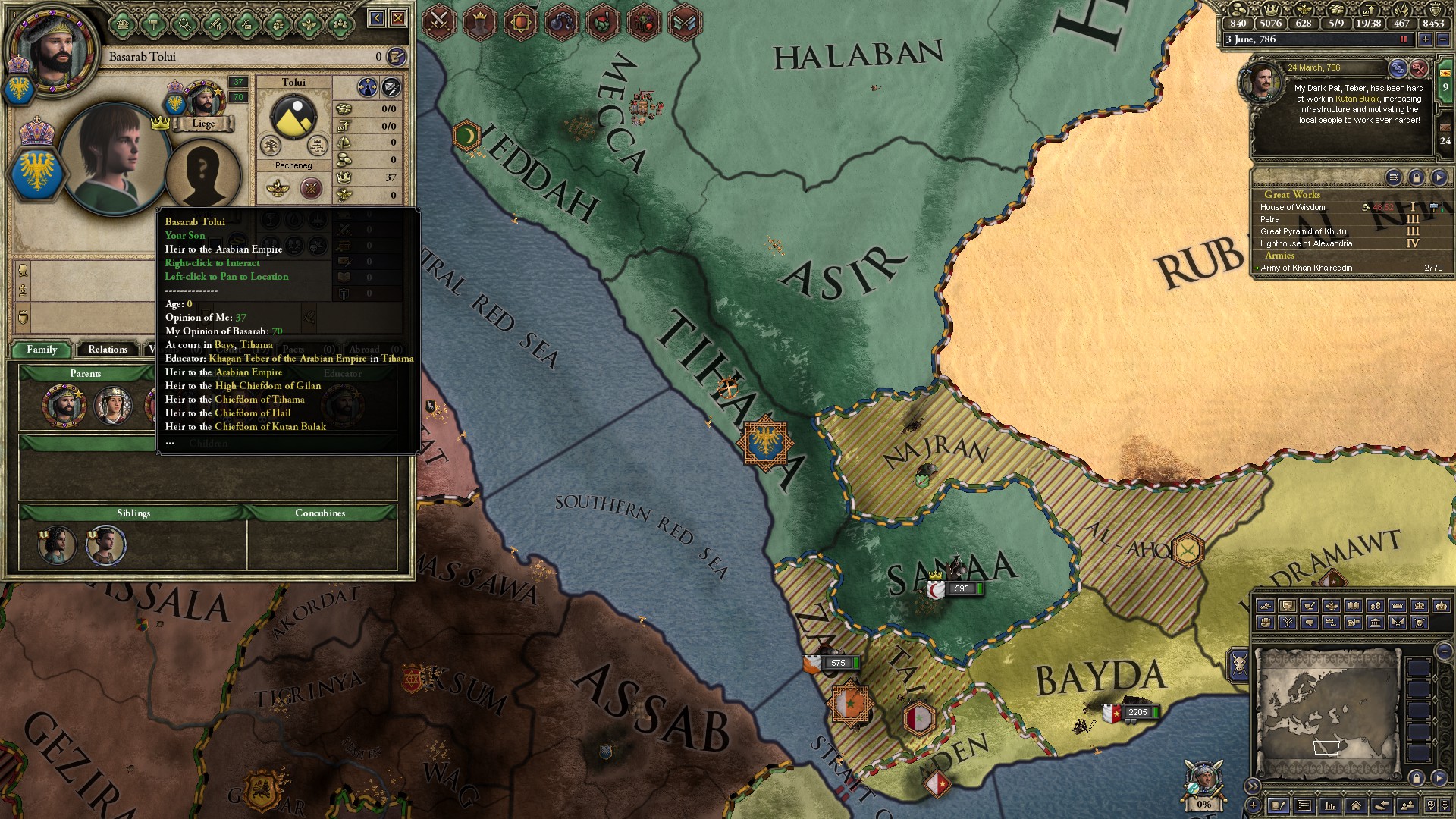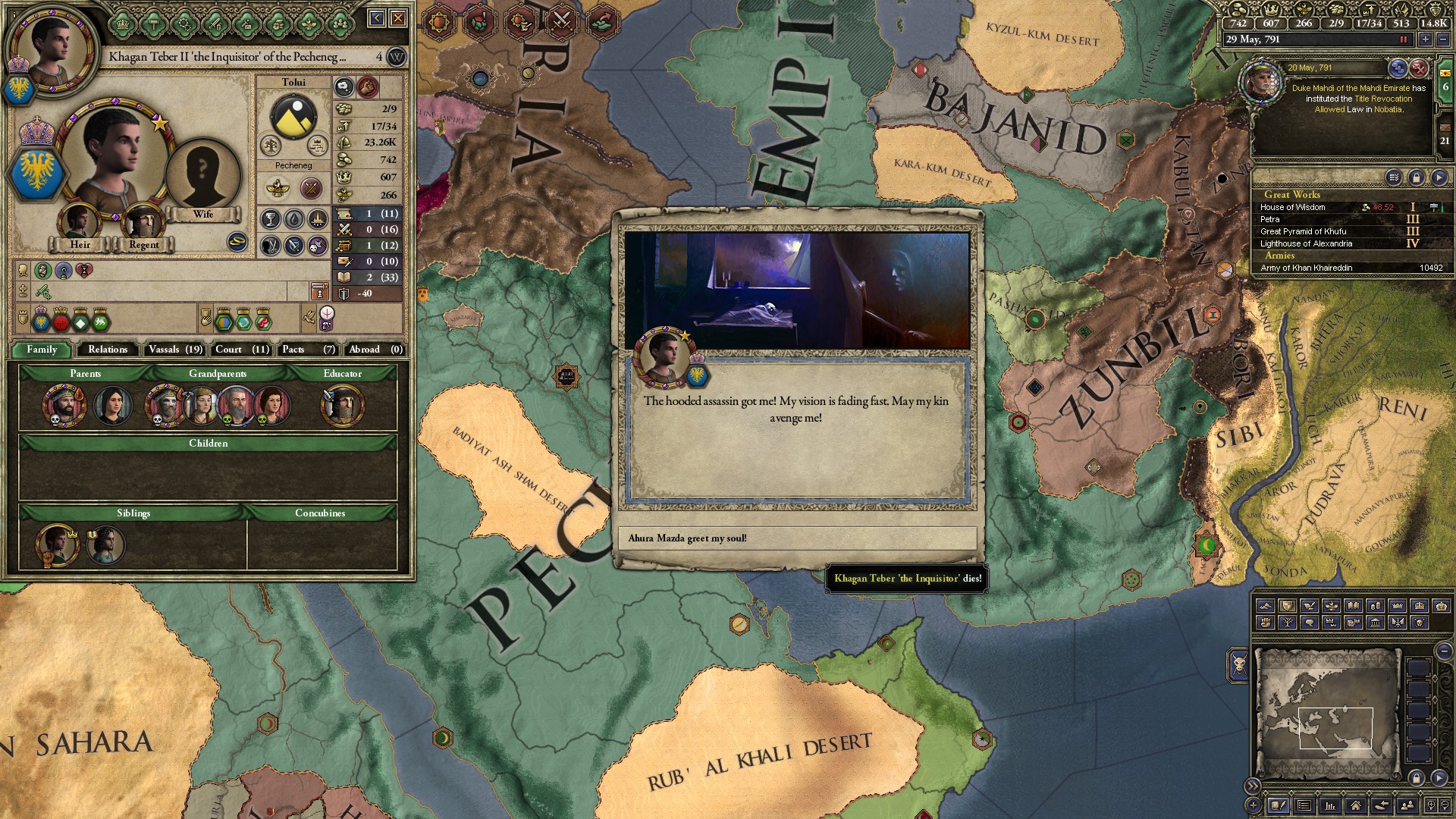Prologue
In the year 769, the Turkic Pecheneg tribes are not in a good state of affairs. Being a tributary of the Khazars,
and controlling only a strip of coast around the Caspian sea, they were by far one of the weakest nomadic
tribes in Asia.
This would all soon change with the ascension of a great leader to the rank of Khagan, who will turn
the tribe's fortunes around and turn them from nomads into a genuine empire.
The man's name was Basarab, of the Tolui dynasty. His family were pig-herders, but through his
enlistment into the army of the Khagan, they were elevated into a Clan. Now that the Khagan had died,
the army proclaimed him Khagan of the Pechenegs.
-----------------------------------------------------------
AUTHOR'S NOTE: This is my very first AAR, and any contructive criticism is more than welcome! I'm not very
experienced with writing, so I might be switching styles and such. Thank you for reading this far, and I hope
I manage to spin an entertaining story.
The goal of this AAR is to switch through every playable government type, and I have a plan to do it as well.
In addition, I must say I am using some performance mods.
Without further ado, I hope you enjoy the AAR.
In the year 769, the Turkic Pecheneg tribes are not in a good state of affairs. Being a tributary of the Khazars,
and controlling only a strip of coast around the Caspian sea, they were by far one of the weakest nomadic
tribes in Asia.
This would all soon change with the ascension of a great leader to the rank of Khagan, who will turn
the tribe's fortunes around and turn them from nomads into a genuine empire.
The man's name was Basarab, of the Tolui dynasty. His family were pig-herders, but through his
enlistment into the army of the Khagan, they were elevated into a Clan. Now that the Khagan had died,
the army proclaimed him Khagan of the Pechenegs.
-----------------------------------------------------------
AUTHOR'S NOTE: This is my very first AAR, and any contructive criticism is more than welcome! I'm not very
experienced with writing, so I might be switching styles and such. Thank you for reading this far, and I hope
I manage to spin an entertaining story.
The goal of this AAR is to switch through every playable government type, and I have a plan to do it as well.
In addition, I must say I am using some performance mods.
Without further ado, I hope you enjoy the AAR.
Last edited:

















